2012-2009
PEC AWARD 2012 - PEC AWARD 2012 - PEC AWARD 2012 - PEC AWARD 2012 - PEC AWARD 2012
The PEC award 2012 for the protection of journalists goes to Syrian militants informing the world on the continuing bloodshed in Syria since the beginning of the uprising.
The choice by the PEC award committee for the Syrian militants is to honor their work and relentless efforts to inform the world about the ongoing massacres against the Syrian people while risking their lives, physical liquidation, imprisonment and torture.
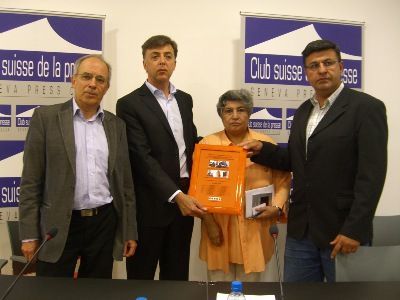
The PEC Award 2012 handed over to the Syrian Democrats to honor journalists and militants who informed the world on the ongoing civil war in Syria - From left to right: Blaise Lempen, PEC Secretary-General, Dr Tawfik Chamaa, president, Syrian Democrats, Hedayat Abdelnabi, PEC President, Abdulhamid Chidda, Syrian Democrats, at the Swiss Press Club, Geneva, 4 June 2012 (photo pec)
DAY OF REMEMBRANCE FOR JOURNALISTS KILLED IN THE LINE OF DUTY - 4 JUNE 2012
READ BELOW PEC PRESS RELEASE ENGLISH, FRENCH, SPANISH, ARABIC and speeches of Dr Tawfik Chamaa, president, Syrians Democrats in Switzerland, Hedayat Abdelnabi, PEC President, Blaise Lempen, PEC Secretary General given at the Swiss Press Club, Geneva, 4 June 2012
More than 40 diplomats, journalists, NGO representatives attended the press conference at the Swiss Press Club for the PEC Award (from left to right Blaise Lempen, Dr Tawfik Chamaa, Hedayat Abdelnabi -photo pec)
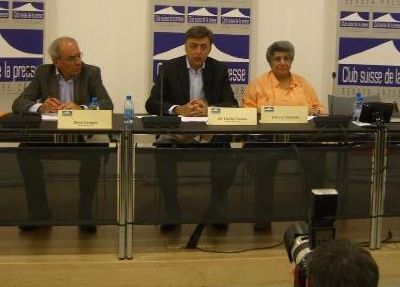
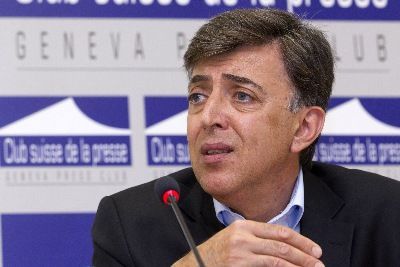
The President of Syrian Democrats accepted the PEC Prize 2012 in the name of all journalists and militants killed in Syria while informing the world: "We must act and not only watch at the blooshed in Syria", he said (photo keystone)
PEC PRESS RELEASE – PEC AWARD 2012
(French, Spanish and Arabic below after English)
PEC award 2012 goes to Syrian militants informing the world
Geneva, 4 June (PEC) The PEC award 2012 for the protection of journalists goes to Syrian militants informing the world on the continuing blood bath in Syria since the beginning of the uprising.
The choice by the PEC award committee for the Syrian militants is to honor their work and relentless efforts to inform the world about the ongoing massacres against the Syrian people while risking their lives, physical liquidation, imprisonment and torture. Since March 2011, 35 journalists and net citizens have been killed in Syria.
PEC President Hedayat Abdelnabi
stressed that this year’s PEC award honors the blood sacrifice of the Syrian people and all militant fighters defending freedom of opinion and expression, journalists, citizen journalist and the innocent babies and children of Syria killed in the ongoing battle for the liberation of their nation.
Abdelnabi
added that the PEC salutes the work of
THE SYRIAN CENTER FOR MEDIA AND FREEDOM OF EXPRESSION (SCM), and the plight of its members all detained since February.
However the Center was attacked and shut down on 16 February by Syrian authorities, and it seemed unlikely that they could come to Geneva. The President of the Syrian Democrats Tawfik Chamaa accepted to represent them in Geneva.
Tawfik Chamaa declared at the press conference organized by the Swiss Press Club in Geneva that the magnitude of the catastrophe where Syrians killed are displayed on the roads, corpses of women and children are under the rubbles of cities and towns destroyed by artillery attacks, will awaken the world to a very fearful scene, and the carnage of the Syrian people will mark the 21st century with shame.
Chamaa
added that the double standard continues, Libyan oil mobilised the world to come to the rescue of the Libyan revolt, while the courage of the Syrian people left the world paralyzed.
PEC Secretary-General Blaise Lempen
noted that the media situation is Syria is very serious, there is no access to independent journalists and when it is officially organized media is targeted, imprisoned, and Syrian journalists are subjected to summary executions.
Lempen adds however all those oppressive efforts by the regime failed to silence the revolt; information continues to spread thanks to the gigantic courage of Syrian militants, those whom we are honoring today.
The situation continues to deteriorate with 107 journalists killed in 2011, others injured, harassed, attacked, and detained during the unfolding events of the Arab spring in Tunisia, Egypt, Libya, Yemen and Syria.
Journalists killed this year at least 65 fell in Syria (15), Somalia (6), Mexico (6), Pakistan (5), Honduras, Brazil, Philippines, Nigeria and other countries. This is a record number compared to the same period of 2011 (44). If calculated on an annual basis this figure could rise to 140 journalists if the situation continues.
In the context of violent situations information is a strategic tool and journalists become its first target.
The PEC will continue its efforts to mobilize governments to face this global crisis and make sure that the perpetrators of those crimes against journalists will not escape justice and that the journalists will enjoy better protection.
Honoring the creation of the PEC on 4 June 2004, the PEC award goes to an individual or a group that has had an outstanding mark in defending journalists and freedom of the press worldwide.
The PEC award since its inception in 2009 went to the militant Palestinian NGO MADA for its role during the Israeli offensive against Gaza, in 2010 it went to the Center for freedom and media responsibility in the Philippines following the massacre of 33 journalists, and in 2011 it went to the militants of the Arab Spring in Egypt, Libya and Tunisia.
Le prix PEC 2012 décerné aux militants syriens qui informent le monde
Genève, 4 juin (PEC)
Le prix 2012 pour la protection des journalistes de la PEC a été décerné lundi à Genève aux militants syriens qui informent le monde extérieur des violences dans leur pays. Ils ont été récompensés pour leur courage et leur persévérance qui leur ont permis de contourner la censure des autorités au risque de leur vie, de l'emprisonnement ou/et de la torture.
Depuis le début de la révolte en mars 2011, 35 journalistes et informateurs sur le net ont perdu la vie en Syrie.
La PEC a voulu en particulier récompenser les militants du
Centre pour les médias et la liberté d'expression de Mazen Darwich à Damas. Le Centre a été attaqué et fermé le 16 février par les autorités syriennes et leurs dirigeants en prison depuis le 17 février n'ont pas pu venir à Genève. Le président des Démocrates syriens en Suisse le Dr Tawfik Chamaa a accepté de les représenter.
La présidente de la PEC Hedayat Abdelnabi a déclaré que le prix PEC rend hommage cette année au sang versé par le peuple syrien et tous les militants défendant la liberté d'opinion et d'expression, les journalistes, blogeurs et enfants tués en Syrie dans la bataille qui se poursuit pour la libération de leur pays.
Abdelnabi a ajouté que la PEC salue le travail du Centre syrien pour les médias et la liberté d'expression (SCM) et les épreuves endurées par leurs membres détenus depuis le mois de février.
Le président des Démocrates syriens le Dr Tawfik Chamaa a déclaré:
"Les martyres jonchent les rues. Les cadavres des femmes et des enfants sont encore ensevelis sous les décombres des villes écrasées par les bombes et les disparus dans les charniers secrets. L'ampleur de la catastrophe va, très prochainement, réveiller le monde avec effroi... Le carnage du peuple syrien va marquer le XXIe siècle".
"Le deux poids, deux mesures restera dans les mémoires des générations à venir: le pétrole libyen avait mobilisé le monde entier. La dignité et le courage des Syriens les ont tétanisés", a ajouté le médecin syrien exilé en Suisse lors d'une conférence de presse organisée au Club suisse de la presse à Genève.
Le secrétaire général de la PEC Blaise Lempen a affirmé que "la situation des médias en Syrie est extrêmement grave. Refus de l'accès aux journalistes indépendants par les autorités, hormis des voyages organisés, attentats visant directement ou indirectement des journalistes, emprisonnement, tortures, exécutions sommaires de journalistes citoyens. Mais, toutes ces tentatives de faire le silence autour de la répression sanglante du régime ont échoué. L'information continue de circuler, bien que partielle, grâce à l'immense courage de militants auxquels nous rendons hommage aujourd'hui".
La situation des journalistes dans le monde a continué de se dégrader au cours de l'année écoulée. Selon le décompte de la PEC, 107 journalistes ont été tués l'an dernier et des dizaines de journalistes ont été tués, blessés, harcelés, attaqués, détenus lors des événements liés au "printemps arabe" en Tunisie, Egypte, Libye, Yémen et Syrie.
Depuis le début de l'année, au moins 65 de nos confrères ont été tués: en Syrie (15), mais aussi en Somalie (6), au Mexique (6), au Pakistan (5), au Honduras, au Brésil, aux Philippines, au Nigeria et dans d'autres pays. C'est un record absolu à cette période de l'année (44 l’an dernier sur la même période de janvier à fin mai). Sur une base annuelle, cela représenterait plus de 140 journalistes tués.
Dans les contextes de violence, l'information et un enjeu stratégique et les journalistes sont de plus en plus ciblés. La PEC va continuer à s'investir pour sensibiliser les gouvernements à cette crise et faire en sorte que les auteurs de ces crimes ne restent pas impunis et que les employés des médias bénéficient d'une meilleure protection.
Décerné chaque année le 4 juin, date anniversaire de la création de la PEC, le prix PEC récompense une organisation, un individu ou un groupe d'individus ayant oeuvré pour la défense de la liberté de la presse dans le monde.
Les précédents lauréats du prix PEC ont été en 2009 l'ONG Mada en Palestine, pour son rôle lors de l'offensive israélienne Plomb durci à Gaza, en 2010 le Centre pour la liberté et la responsabilité des médias aux Philippines et le Fonds pour les familles des 33 journalistes massacrés dans ce pays, puis l'an dernier des militants du "printemps arabe" en Tunisie, en Egypte et en Libye.
Premio PEC 2012 asignado a militantes sirios que mantienen informada comunidad internacional a pesar de la “extrema violencia”
Ginebra, 4 de junio (PEC).
El Galardón 2012 de PEC para la protección de periodistas, va para los militantes sirios que en extremas condiciones mantienen informado al mundo sobre los continuos eventos de sangre, desde los primeros días del levantamiento en el país.
El Premio acreditado por el Comité de PEC para los militantes sirios, es en homenaje a su remarcable trabajo y coraje al informar a la comunidad internacional acerca de las continuas masacres que sufre el pueblo sirio, al tiempo que arriesgan su vida, bajo amenazas, detenciones, encarcelamientos y torturas.
El Centro Sirio para Medias y libertad de expresión (CSM), fue atacado y cerrado por las autoridades sirias el 16 de febrero de este año, por lo que no pueden estar presentes a acto de entrega del Premio en Ginebra. Tawfik Chamaa, presidente de Demócratas Sirios, ha aceptado representarlos en Ginebra.
15 periodistas han sido asesinados desde enero 2012 en Siria. Pero si contamos a los blogueros y “ciudadanos periodistas”, el resultado es atroz con 35 victimados desde el inicio de las revueltas, en marzo 2011.
La presidenta de PEC, Hedayat Abdelnabi, ha afirmado que el Premio de PEC de este año honora la sangre derramada y el sacrificio de todo el pueblo sirio y de aquellos militantes que combaten para defender la libertad de expresión y de pensamiento, periodistas, niños y aún bebés que han sido víctimas del régimen, en la lucha por la liberación de su país.
Abdelnabi anotó además, que PEC se solidariza con el trabajo del
Centro Sirio para Medias y Libertad de Expresión (CSM), y el duro sacrificio de sus miembros detenidos desde febrero.
Tawfik Chamaa,
en la conferencia de prensa organizada por Swiss Press Club en Ginebra declaró, que la magnitud de la catástrofe – en la que los mártires se muestran en las calles, cuerpos de mujeres y niños bajo escombros de ciudades y pueblos bombardeados por artillería de guerra – abrirán los ojos del mundo a una escena tenebrosa, y la carnicería del pueblo sirio marcará el siglo XXI de infinita y profunda tristeza.
Chamaa añadió que un doble estándar continua, el petróleo de Libia movilizó al mundo para venir a rescatar la revuelta de Libia, mientras que el coraje del pueblo sirio ha dejado al mundo polarizado y paralizado.
Blaise Lempen, Secretario general de PEC,
anotó que la situación del periodismo en Siria es muy seria, sin acceso al periodismo independiente, cuando es oficialmente organizado los media son atacados, y periodistas sirios son detenidos, torturados y ejecutados.
Lempen señala que a pesar de la implacable violencia de la represión del régimen, el levantamiento social no ha sido silenciado, y que la información continua diseminándose gracias al extraordinario coraje de militantes sirios, “aquellos a quienes hoy rendimos homenaje.”
La situación de periodistas continua deteriorándose alrededor del mundo con 107 periodistas muertos en el 2011, sin contar con los heridos, amenazados, atacados, y detenidos en el transcurso del levantamiento árabe en Túnez, Egipto, Libia, Yemen y Siria.
Los 65 periodistas muertos este año, implicaron a países como: Siria (15), Somalia (6), México (6), Pakistan (5), Honduras, Brasil, Filipinas, Nigeria, entre otros; todo un “record”, según el sistema de monitoreo de PEC. Si la situación continua, la cifra podría llegar a 140 periodistas.
En el contexto de información en situaciones violentas, la información es un instrumento estratégico, por lo que los periodistas se convierten en objetivo militar.
PEC va a continuar con sus esfuerzos para movilizar gobiernos, a encarar esta crisis global, asegurar que los perpetradores de crímenes contra periodistas no escapen a la justicia, y que los periodistas disfruten de una mejor protección.
Otorgado el 4 de junio de cada año, aniversario de la fundación de PEC (2004), el Galardón anual de PEC es otorgado al individuo o grupo u organización que de forma remarcable hayan defendido la libertad de expresión en cualquier geografía del mundo.
En el 2009, el Premio de PEC fue otorgado al militante palestino de la ONG MADA, por su rol durante la ofensiva israelí a Gaza; en 2010, este fue otorgado al Centro para la Libertad y Responsabilidad de Medias en Filipinas, siguiendo la masacre de 33 periodistas; en 2011 el Galardón de PEC fue para los militantes de la “Primavera Arabe” en Egipto, Libia y Túnez.
جائزة حملة الشارة 2012 تذهب للمناضلين السوريين
جنيف 4 يونيو (حملة الشارة) – اعلنت لجنة الجائزة السنوية لحملة شارة حماية الصحفي و مقرها جنيف أن جائزتها لعام 2012 ذهبت بالإجماع إلى المناضلين السوريين الذين أخبروا العالم بتفاصيل ما يجري في سوريا من مذابح و قمع للشعب السوري.
و اضافت الحملة في بيانها من جنيف أن جائزتها لعام 2012 تكرم هؤلاء المناضلين الذين لم يدخروا جهدا في ايصال رسالتهم إلى العالم و اخبار الانتفاضة السورية رغم المخاطر الشديدة المحيطة بهذا الجهد سواء من تصفية جسدية و اعتقال أو تعذيب.
في البداية توجهت رغبة اللجنة إلى منح جائزة 2012 إلى المركز السوري للإعلام و حرية التعبير الذي يتراسه مازن درويش و هو حاليا و بعض من زملائه رهن الاعتقال و أغلق المركز منذ 16 فبراير الماضي، و بدا من الصعوبة بمكان حضور أي منهم إلى جنيف في الوقت الراهن. و اكتفينا بحضور من يمثلهم من سويسرا و هو رئيس "السوريون الديمقراطيون" د. توفيق شماع.
خلال العام الحالي قتل 15 صحفيا في سوريا، و لو أن الأرقام تضمنت "المدونون" و "الصحفيون المواطنون" لأرتفع الرقم إلى 30 قتيلاً منذ بداية الانتفاضة السورية في 35 مارس 2011.
أكدت رئيسة حملة الشارة الدولية هدايت عبد النبي أن جائزة الحملة هذا العام تكرم ضحايا انهار الدم التي سالت في سوريا و التضحية الكبرى للشعب السوري، و كل المناضلين السوريين الذين يدافعون عن حرية الرأي و التعبير، و الصحفيين، و المواطن الصحفي، و "المدونون" و الأطفال السوريين الأبرياء الذين سقطوا بالمئات خلال المعركة الحالية لتحرير بلادهم.
قالت عبد النبي أنها تحي بصفة خاصة العمل المهم الذي قام به المركز السوري للإعلام و حرية التعبير و معاناة أعضائه في المعتقلات السورية منذ فبراير الماضي، ورغم أن بعضهم قد أفرج عنه إلا أن درويش و رفاقه مازالوا في المعتقل.
بينما ذكر توفيق شماع، في المؤتمر الصحفي الذي نظمه نادي الصحافة بجنيف للإعلان عن الجائزة، أن
حجم المأساة في سوريا من قتلى و جثث تحت الانقاض للنساء و الأطفال و مدن دكتها المدفعية السورية سوف يصحو عليها العالم ليرى مشهداً مخيفاً للغاية، و تسبغ مجزرة الشعب السوري على القرن الحادي و العشرين صبغة من الخجل.
اضاف ان الكيل بمكيالين يستمر ففي ليبيا حيث النفط هب العالم لإنقاذ الشعب الليبي، غير ان شجاعة الشعب السوري وجدت العالم في حالة شلل.
قال سكرتير عام الحملة بليز ليمبان
أن وضع الإعلام خطير للغاية في سوريا، فلا يوجد محرج للوصول من قبل الصحفيين المعتقليين إلى الحدث و حين تنظم السلطات السورية مثل هذه النشاطات يتم استهداف الصحفيين و يعاني الصحفيون السوريون من كافة الإجراءات التعسفية.
رغم ذلك قال ليمبان أن كل هذه الاجراءات القمعية من قبل النظام السوري فشلت في فرض الصمت استمرت المعلومات في الخروج من سوريا بسبب الشجاعة الفائقة للمنصالين السوريين الذين نكرمهم اليوم.
ذهبت جائزة الشارة منذ بدء العمل بها في 2009 لمركز مادا الفلسطيني لدوره في نشر المعلومات للعالم وقت الاجتياح الإسرائيلي لغزة، ثم ذهبت في 2010 إلى مركز حرية و المسئولية الإعلامية في الفلبين في 2010 بعد مجزرة 35 صحفياً هناك، و في 2011 ذهبت إلى المدويين و الناشطين في حركة الثورة العربية في تونس و لييببا و مصر.
تستمر حالة التدهور في ظروف العمل الصحفي فمنذ بداية العام قتل 65 صحفيا و صحفية و تعرض الكثر من الصحفيين و الصحفيات إلى الإصابة و الاستهداف و الاعتقال خلال أحداث الربيع العربي في تونس و مصر و ليبيا و اليمن و سوريا.
تعرض 65 صحفيا و صحفية للقتل منذ بداية العام الحالي في سوريا و باكستان و الفلبين و نيجيريا و الصومال و المكسيك و البرازيل. هذا العدد يمثل رقماً قياسياً و إذا استمر هذا المعدل فربما يرتفع العدد بنهاية العام الحالي إلى 140.
تظل المعلومات في حالات العنف سلعة استراتيجية و يكون الصحفي و الصحفية هم أوائل المستهدفين.
سوف تستمر حملة الشارة في جهودها لتعبئة الحكومات من اجل مواجهة هذه المشكلة العالمية و ستعمل على أن يلقى من قام بهذه الجرائم نتائج هذه الأعمال ضد الصحفيين حتى نضمن للصحفيين حماية أفضل.
جاء اختيار الرابع من يونيو كل عام للإعلان عن جائزة الشارة من أجل إحياء ذكرى إقامة المنظمة الدولية في جنيف في 4 يونيو 2004 و الجائزة تذهب إلى فرد أو مجموعة قدمت الكثير لحماية الصحفيين و حرية الصحافة في العالم أجمع.
لمزيد من المعلومات تابع
النهاية
Discours du Dr Tawkik Chamaa, président des Démocrates syriens - Club suisse de la presse - Genève 4.6.2012
« Syrie terre des civilisations » : ce fut le titre d’une exposition au musée national à Berne il y a environ 10 ans ; étant l’un des dizaines de milliers d’exilés forcés et menacés ouvertement par la prison et la torture, ces vestiges archéologiques des terres syriennes témoignant de la diversité des ethnies, des cultures et civilisations furent parmi les rares liens avec ma patrie la Syrie depuis 33 ans.
Les années passent et une génération nouvelle vit toujours dans l’immobilisme des dictatures : manque des libertés politiques, corruption, chômage, disparités économiques croissantes, détérioration de l’éducation, de l’agriculture et enfin l’humiliation au quotidien de la part de l’ensemble des structures étatiques, armée, police et services secrets…
Une révolution …et en Syrie… ?
On ne le croyait plus…la répression est telle qu’il faut être carrément suicidaire pour oser une quelconque contestation…
Devant les commentaires de mes filles revenant d’une visite du pays en 2009, je restais incrédule : « il y a un changement inquiétant dans l’état d’esprit des Syriens par rapport à notre visite d’il y a quelques années…on sent qu’ils vont exploser…en particulier les disparités entre riches et pauvres…on ressent une tension menaçante… »
Ainsi, et pour ceux qui considéraient les apparences d’une certaine modernité dans les grandes villes du monde arabe comme des signes d’un changement positifs, ils se trompaient. Les fruits de la corruption, transformés en une modernité sélective, touchaient les élites plus ou moins proches des pouvoirs, sans considération, aucune, des réalités de la vie quotidienne de la majorité de ces populations.
En Syrie, cette situation qui dure depuis quarante ans est à l’origine de la génération d’une révolution qui continue depuis plus d’un an, défiant la mort, les emprisonnements et la torture. La génération de l’enfant Hamza ELKHATIB et du journaliste Mazen DARWICH.
Si le printemps arabe s’attribue le nom des révolutions des jasmins, la révolution syrienne est celle des champs de coquelicots…
Les martyrs jonchent les rues. Les cadavres des femmes et des enfants sont encore ensevelis sous les décombres des villes écrasées par les bombes, et les disparus dans les charniers secrets.
Des pratiques barbares qui dépassent l’entendement. Une femme avec ses 5 enfants ont été égorgés près de Hamas il y a quelques semaines…c’était la sœur du cofondateur des Démocrates Syriens, qui avait, lui, fui le carnage de 1982…
Ce massacre précédait de quelques jours seulemnt celui de Houla, 108 personnes dont 49 enfants égorgés ou tués à bout portant s’ils avaient échappé aux éclats des obus…
Et ce n’est que le sommet de l’iceberg…
L’ampleur de la catastrophe va, très prochainement, réveiller le monde avec effroi…
Et on ne peut point dire que « on ne savait pas… ». Le monde de l’information et de la transparence a modifié les règles du jeu. Il nous impose la vision de l’horreur…en face à face…devant notre conscience, et en temps réel.
Le deux poids, deux mesures restera dans les mémoires des générations à venir : le pétrole libyen avait mobilisé le monde entier. La dignité et le courage des Syriens les ont tétanisés… !
Notre conscience collective a soudain besoin d’une certaine « neutralité » !!
Mais que ce passe-t-il ?
Personne ne bouge et le carnage continue…
A la croisée des continents, sur la route de la soie, berceau de l’écriture et des religions, ses richesses ethniques et sa multiplicité culturelle donne à ce nœud du monde une complexité géopolitique qui arrive à son apogée à nos jours avec les vetos russo-chinois.
Le peuple syrien est-il victime de la renaissance d’une guerre froide ?
Certains analystes avancent la théorie du complot… mondial : La divergence affichée (entre russo-chinois et occidentaux) cache une complicité tacite : ils s’accordent tous à laisser la révolution syrienne s’essoufler autant que possible, son triomphe n’arrange personne et surtout pas la sécurité des frontières nord de l’Etat d’Israel…
Les bateaux chargés d’armes et munitions à l’attention du régime passent et ceux destnés à la résistance sont arrêtés avec fracas médiatique.
J’aurais bien voulu que cette théorie soit vide de tout sens. Hélas, des déclarations des analystes pro-israéliens comme Alexandre ADLER www.youtube.com/watch?feature=player_embedded&v=8OlZu7xyHbI
Dans ses conclusions : un état syrien gouverné par une majorité sunnite est plus dangereux pour l’Etat d’Israel que la bombe atomique iranienne.
Il s’accorde ainsi avec les commentaires du ministre russe des affaires étrangères Lavrov qui exprime les craintes liées à la naissance de ce nouvel Etat syrien…
Si l’équilibre stratégique sensible dans ce Moyen Orient fragilisé par tant de tractations impose un certain silence à la communauté internationale, le déguisement de sa pseudo-crise morale en semi-solutions boiteuses ne pardonnera pas ce bain de sang.
Et jamais, aucune cause au monde, quelle qu’elle soit, ne peut justifier la mort d’un enfant. Jamais !
Les archives des Etats seront étudiés par nos enfants le 25 mai 2042, ils auront 30 ans, et ils vont cracher sur l’Histoire…la nôtre…
Nous sommes des millions de Syriens de par le monde qui ne fermons plus l’œil une seule nuit depuis plus d’un an sans penser à notre peuple meurtri.
Au lendemain du massacre d’Houla, je me révéille au milieu de la nuit en criant. J’avais un cauchemar…des ombres malveillantes pénétraient dans la nuit ma maison menaçant ma famille… j’avais crié pour appeler au secours. En me réveillant, je n’avais pas le sentiment habituel de soulagement du réveil d’un cauchemar. J’avais une frustration avec l’envie irrésistible de replonger dans le sommeil pour retrouver le cauchemar et continuer à appeler au secours… Je replonge et me voici avec vous …le cauchemar continue.
Entre le pragmatisme circonstanciel des grandes puissances et les implications humaines de devoir d’ingérence, le temps joue en faveur de l’horreur.
Comment réveiller la conscience du monde politique, leur forcer la main à prendre des décisions et avancer des actes concrets qui restent en conformité avec les engagements de l’humanité face à des crimes collectifs ?
La question syrienne fait en effet l’objet d’une mobilisation massive des sociétés civiles dans le monde libre. Ce sont ces sociétés qui sont les vrais garants des valeurs et les vrais protecteurs des libertés.
Les exemples de leurs mobilisations se multiplient :
L’engagement de plusieurs ONG à nos côtés, comme Médecins sans frontières et d’autres…
Les initiatives privées qui donnent des effets étonnants de solidarité et de soutien : Plus de 700 médecins suisses ont signé un Manifeste en faveur de l’engagement des médecins syriens pour le secours des blessés (www.akauku.net)
Et le monde de la presse et des médias multiplie les actions honorables.
Cette mobilisation croissante donnera sans doute ses fruits dans les sociétés où la décision politique finira par se plier devant la pression des institutions démocratiques qui ne badinent pas avec les valeurs essentielles.
Sachant que les Syriens, dignes et courageux, restent déterminés à continuer leur combat pour la liberté jusqu’au dernier d’entre eux, leur combat pour la démocratie devient ainsi celui du monde libre face à un monde politique dominé par les intérêts et les calculs scandaleux.
Nous espérons ainsi nous retrouver tous ensemble pour avancer avec les vraies valeurs de l’humanité, celles du 21è siècle.
Tawfik CHAMAA
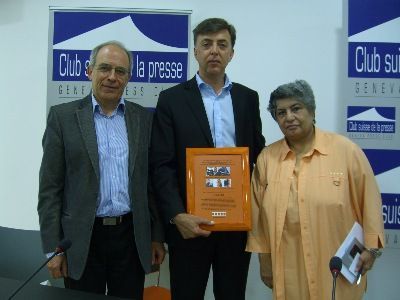
Hedayat Abdelnabi (right) delivering the PEC Award to Dr Tawfik Chamaa (center)
A minute of silence for the victims of the Syrian conflict
By Hedayat Abdelnabi, PEC President
As we honor today the Syrian militants who have paid dearly with their lives I would like us all to stand a minute of silence honoring the victims of the Syrian conflict including those of the massacre that took place in the El Houleh area of Homs in Syria on 25 and 26 May in which at least 108 people, including 49 children, were killed. Most of these children were reportedly under the age of 10. This tragedy continues as reports by United Nations observers are telling of the continued indiscriminate acts of violence and killings against the civilian population and the increasing number of civilian victims, particularly children.
I quote from the UN Committee for the Rights of the Child:
“The Committee is deeply concerned that, since the beginning of protests in Syria in March 2011, hundreds of children have been killed, injured and detained, and that despite strong and repeated calls to the State and other parties to stop such grave violations, no action appears to have been taken,” the Committee stated. “We are appalled by information that in the El Houleh area, civilians - including children - could have been deliberately targeted.”
Today we honor together with the memory of fallen colleagues in Syria the blood sacrifice of the Syrian people and all militant fighters defending freedom of opinion and expression, journalists, citizen journalist and the innocent babies and children of Syria killed in the ongoing battle for the liberation of their nation.
The PEC
salutes the work of
THE SYRIAN CENTER FOR MEDIA AND FREEDOM OF EXPRESSION (SCM),and the plight of its members all detained since February.
I met Yara Badr, Director-General of the Syrian Center, in December 2011, during the conference organized by the Center for Defending Freedom of Journalists, based in Amman, Jordan, and led by Nedal Mansour. Yara and I talked several times during the conference, she strongly supported the PEC work and suggested that the Syrian Center signs the PEC draft convention for the protection of journalists in dangerous situations. I hope soon Yara will be released from detention and can come to Geneva to sign the convention on behalf of the Center, and it is my hope that we can start a process thereafter for signatories from all the supporters of the draft convention from civil society, and they are many.
From Geneva, the PEC sends a strong message of solidarity with all the members of the Center and calls upon the Human Rights Council to act forcefully for their release from Syrian detention centers.
PRIX PEC 2012. CLUB SUISSE DE LA PRESSE - discours du secrétaire général de la PEC Blaise Lempen.
La PEC décerne chaque année depuis 2009 un prix pour la protection des journalistes qui récompense une organisation ou un individu pour son travail en faveur de la liberté de la presse.
Cette année, la gravité de la répression visant les medias en Syrie s'est imposée au comité de la PEC. Au moins 15 journalistes ont été tués depuis le mois de janvier en Syrie. Si l'on compte aussi les blogeurs et les "citoyens journalistes", le bilan avoisine les 35 tués depuis le début des violences en mars 2011.
Les militants syriens qui informent chaque jour le monde extérieur des violences font un travail extrêmement courageux et essentiel pour documenter les violations des droits de l'homme, crimes de guerre et crimes contre l'humanité commis en Syrie qui atteignent un degré sans précédent dans l'horreur jusqu'ici au XXIe siècle.
Beaucoup d'entre eux l'ont payé de leur vie. D'autres sont actuellement en détention, et, selon certaines informations, torturés.
La PEC voulait récompenser en particulier le Centre pour les médias et la liberté d'expression dirigé à Damas par Mazen Darwich. Depuis longtemps dans l'opposition au président Assad, ce centre a toutefois été attaqué et fermé le 16 février dernier.
Depuis, son directeur Mazen Darwich et plusieurs de ses membres sont en prison. Les employées femmes du Centre ont d'abord été laissées en liberté, puis arrêtées à leur tour, puis remises en liberté. Le 29 mai, sept employés du Centre ont été convoqués devant un tribunal militaire à Damas pour "possession de matériel interdit avec l'intention de les diffuser". Le juge a décidé de reporter le procès au 25 juin parce que les services de renseignement de l'armée de l'air n'ont pas fait savoir si le directeur du centre Mazen Darwich pourrait apparaître comme témoin.
Nous dédions donc ce Prix PEC 2012 aux militants du Centre pour les médias et la liberté d'expression actuellement détenus ou persécutés en Syrie. Nous espérons que nous pourrons leur donner personnellement le prix une fois qu'ils seront libérés.
Nous pensons que l'attention que nous portons à ces militants depuis l'étranger peut les aider. Des gouvernements sont intervenus en leur faveur, notamment l'Union européenne. Le Dr Tawfik Chamaa, président des Démocrates syriens en Suisse, a accepté de recevoir aujourd'hui le prix au nom de ces militants emprisonnés. Nous l'en remercions infiniment.
La situation des médias en Syrie a été et reste extrêmement grave. Refus de l'accès aux journalistes indépendants par les autorités, hormis des voyages organisés, attentats visant directement ou indirectement des journalistes, emprisonnement, tortures, exécutions sommaires de journalistes citoyens. Mais, toutes ces tentatives de faire le silence autour de la répression sanglante du régime ont échoué. L'information continue de circuler, bien que partielle.
La Syrie est malheureusement une terrible illustration des dangers croissants qu'affrontent les journalistes en raison de l'évolution chaotique des conflits, du plus grand nombre d'acteurs sur le terrain, y compris des groupes criminels, du développement d'une forme d'anarchie dans certains pays ou certaines régions devenus incontrôlables, de l'absence de respect des traités internationaux ainsi que du fléau de l'impunité.
La situation des journalistes dans le monde a ainsi continué de se dégrader au cours de l'année écoulée. Selon notre décompte, 107 journalistes ont été tués l'an dernier et des dizaines de journalistes ont été tués, blessés, harcelés, attaqués, détenus lors des événements liés au "printemps arabe" en Tunisie, Egypte, Libye, Yemen et Syrie.
Nous avons alerté le Conseil des droits de l'homme régulièrement et un projet de résolution sur la protection des journalistes est en préparation. Nous souhaitons un texte fort qui aille au-delà des seules condamnations et prévoie des mécanismes concrets pour faire appliquer le droit international. En janvier, la conférence de Doha convoquée par le Qatar a adopté des recommandations sur la protection des journalistes qui doivent être maintenant mises en oeuvre.
Depuis le début de l'année, à fin mai, 65 de nos confrères ont été tués, une nette augmentation par rapport aux 44 morts recensés fin mai 2011: ils ont été tués en Syrie, mais aussi en Somalie, au Mexique, au Honduras, au Brésil, au Pakistan, aux Philippines, au Nigéria et dans plusieurs autres pays. C'est un record absolu à cette période de l'année. Sur une base annuelle, à ce rythme, cela représenterait près de 140 journalistes tués.
La PEC va continuer à s'investir pour sensibiliser les gouvernements et faire en sorte que les auteurs de ces crimes ne restent pas impunis et que les employés des medias bénéficient d'une meilleure protection.
Le Prix PEC a récompensé ces trois dernières années l'ONG Mada en Palestine, pour son rôle lors de l'offensive israélienne Plomb durci à Gaza, le Centre pour la liberté et la responsabilité des medias aux Philippines et le Fonds pour les familles des 33 journalistes massacrés dans ce pays, puis en 2011 des militants du "printemps arabe" en Tunisie, en Egypte et en Libye.
PEC AWARD 2011 - PEC AWARD 2011 - PEC AWARD 2011 - PEC AWARD 2011 - PEC AWARD 2011
The Press Emblem Campaign (PEC) award committee has chosen 3 laureates for its 2011 award. The three awards have been handed on 8 June in Geneva: to the President of the
Tunisian syndicate of journalists Neji Bghouri, to
Ahmed Abdelaziz, representing
the bloggers of the revolution of Egypt who made the 25th January revolution a success, to Khaled Saleh, representative of the Libyan opposition on behalf of the non-governmental-organization
Libyan Human Rights Solidarity (LHRS), based in Switzerland.
In honoring the laureates of the PEC award this year, the PEC pays tribute to the courage of millions of Arabs participating in the current uprising. In so doing, the PEC also encourages the move towards strengthening the development of independent media institutions in Tunisia, Egypt and Libya.
The PEC has also honored with a certificate Ambassador
Abdullah Falah Abdulla Al-Dosari, permanent representative of the State of Qatar to the UN in Geneva for his supportive role in strengthening the PEC cause.
READ below full speeches of the laureates, Tunisian chargé d'affaires and PEC board members, press release (English, French, Arabic, Spanish) - click also left on page PRESS for some press reports on the PEC award ceremony
The PEC award 2011 was sponsored by the mission of the state of Qatar-Geneva, Ahmed Yousuf Behbehani, Hotel Intercontinental-Geneva, Union suisse des journalistes francophones, and the Geneva Press Club. We thank all for their support.
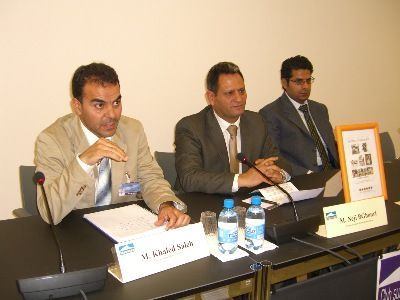
The three laureates of the PEC award 2011: Khaled Saleh (Libyan Human Rights Solidarity), Neji Bghouri (president of the Tunisian Syndicate of Journalists), Ahmed Abdelaziz (co-founder of April 6 youth movement in Egypt)
The laureates with Qatar ambassador Abdullah Falah Abdulla Al-Dosari and PEC president Hedayat Abdelnabi at the PEC award ceremony, Swiss Press Club, Geneva, June 8, 2011
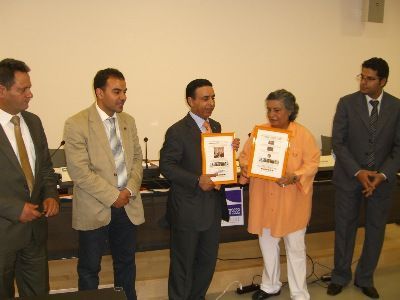
PEC Secretary-General Blaise Lempen with the President of the Tunisian syndicate of journalists Neji Bghouri
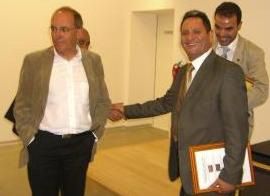
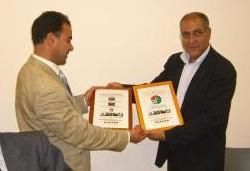
PEC vice-president Mohamed Cherif with the libyan human rights defender Khaled Saleh representative of the NGO in Switzerland Libyan Human Rights Solidarity (LHRS)
Ahmed Abdelaziz with the vice-president of Impressum (Swiss Federation of Journalists), member of the PEC board Christian Campiche - Ahmed Abdelaziz asked for one minute of silence to remember all victims of the revolution in the arab world
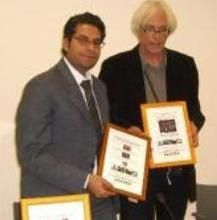
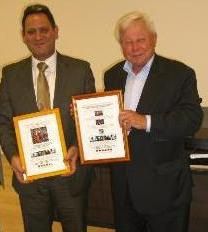
Neji Bghouri with PEC vice-president Daniel Favre, president of the french speaking countries journalists' asociation (photos PEC) READ all speeches below
SPEECHES DELIVERED AT THE PEC AWARD CEREMONY, June 8, 2011, Geneva
Introductory remarks of PEC president Hedayat Abdelnabi :
Today the PEC pays tribute to the courage of millions of Arabs participating in the current uprising which was ignited by a spark in Tunisia opening thus
the gates of heaven for the Arab people.
What is really historic about the uprising of the millions all over the Arab region is that for the first time a miracle unity is developing in a
geographical strategic zone which they describe as their “greater nation” from the Atlantic to the Gulf, boundaries have fell, freedom is
reverberating across the borders, it is now a Schengen area of freedom, freedom waves are freely moving from one country to the other, frontiers of
fear have fell.
It is a miracle unity of the people because for the first time it is uniquely a grass root spontaneous movement facilitated by the new media.
The media and the journalists have been in the forefront of theses waves calling for freedom, dignity and democracy.
The world followed this miraculous wave in the Arab region through the dissemination of information by courageous Arab activists and journalists.
The current Arab uprising since the December 2010 and the success of the Tunisian and Egyptian revolutions open the way forward for democracies to
flourish and for freedom of expression to prevail.
The media casualties in the Libyan conflict, five journalists so far, opens the eyes of UN member states to the fact that media are being
confronted with risks and dangers which are unprecedented in a manner that may convince a cluster of states to join the PEC project of a convention to
protect journalists in conflict zones and during civil unrest.
We must remember today Mohammed Bouazizi , Khaled Said and the hundreds of fallen militants who continue to die for the liberty of their nation.
The waves of freedom, sparked by the two militants and which ignited the Arab uprising, will not seize until Mohammed Bouazizi , Khaled Said are
vindicated and their perpetrators brought to justice.
Speech delivered by PEC Secretary-General Blaise Lempen for the award to Neji Bghouri :
C'est la Tunisie qui a montré la voie du "printemps arabe". Ce sont les Tunisiens qui ont chassé en premier le dictateur. En accordant son prix au représentant du syndicat des journalistes tunisiens, le jury du prix PEC veut
saluer ce mouvement d'émancipation historique de la société civile qui,
nous n'en doutons pas, est mûre pour la démocratie. Il n'y a pas et il n'y a jamais eu d'exception arabe. Les droits fondamentaux sont des droits universels.
En Suisse, nous aimons la Tunisie, pour y avoir passé d'heureuses vacances
en famille. Nous y avons des souvenirs. Nous avions néanmoins quelque scrupule à venir remplir les caisses de Ben Ali et de son clan. Maintenant, nous pouvons nous rendre en Tunisie le coeur et l'esprit réconciliés.
Pendant des années, les journalistes tunisiens ont été contraints de se soumettre aux ordres d'un dictateur, de servir les intérêts d'un clan, de subir la censure, de pratiquer l'autocensure. Nous avions souvent dénoncé cette aberration de l'extérieur du pays. Lorsque j'étais étudiant à l'école
de journalisme de Strasbourg, j'avais un ami étudiant tunisien. Nous avons
suivi les mêmes cours. Je suis rentré en Suisse et j'ai trouvé immédiatement un emploi dans un journal suisse. Mon ami est rentré en Tunisie mais n'a jamais pu exercer le métier qu'il avait appris en France, celui de journaliste.
Lorsqu'un pays recouvre la liberté de la presse, il recouvre en même temps toutes les libertés, car la démocratie naît de la libre confrontation des opinions. Nous sommes contents de voir les journalistes tunisiens s'organiser enfin librement. Nous avions connu la même joie il y a 20 ans lors de la chute
du Mur de Berlin et l'effondrement du communisme dans les pays d'Europe de l'Est. Les médias traditionnels comme les réseaux sociaux ont un rôle fondamental à jouer dans la formation des opinions et le contrôle des élites. Nous sommes convaincus que les journalistes tunisiens sauront développer une presse diversifiée, critique, respectueuse des opinions de chacun, et jeter les fondements d'une démocratie solide et durable.
Speech delivered by the president of Tunisian journalists Neji Bghouri (photo):
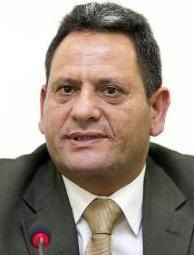
SNJT et Presse Emblème Campagne (PEC)
Le 3 mai 2008, à l’ occasion de la journée mondiale de la liberté de la presse, nous avons publié notre premier rapport, sur la situation de la presse tunisienne, qui était très critique.
Une semaine après, nous recevions une facture de 26 000 DT héritée de la défunte AJT(le SNJT est crée le 13 janvier 2008, pour remplacer l’AJT après 62ans de son existence) envoyée par la sécurité sociale. Ayant refusé de soutenir publiquement la candidature de Ben Ali pour un 5e mandat, le bureau de notre syndicat se verra confronté à toutes sortes de pressions.
Dans la foulée, le SNJT implose, tiraillé qu'il était entre pro et anti-Ben Ali. J'ai même été passé à tabac par la police politique. Le 4 mai 2009, lors de la présentation du 2ème rapport du syndicat sur la liberté de la presse, des membres en faveur du pouvoir Ben Ali, ont évacués la salle de la conférence, ils sont allé jusqu’à molester le président du Syndicat.
Le 15 août 2009, Le pouvoir politique en Tunisie a repris, illégalement et par la force, le contrôle du Syndicat National des Journalistes Tunisiens (SNJT), rétablissant son emprise sur une corporation professionnelle qui a osé clamer ouvertement sa volonté d’indépendance et d’autonomie.
Sous la dictature la presse tunisienne a été complètement contrôlé, assiégé par la police politique du ministère de communication, et la
fameuse agence de propagande ATCE et les services spéciaux du palais de Ben Ali. La dictature a fait main basse sur le secteur, orientant ses interventions selon ses propres intérêts jusqu’à la dernière minute précédant la fuite du Président déchu. Longues étaient les années de rétention, et de
restrictions à la liberté d'expression.
Après la chute du dictateur le paysage médiatique tunisien a connu un changement radicale, l'heure est désormais aux discussions, aux débats et
aux confrontations de points de vue, et les citoyens tunisiens commencent à reprendre confiance dans les médias. La presse tunisienne est libre.
Plus libre que sous Ben Ali. Pourtant, beaucoup de Tunisiens craignent de ne pas profiter bien longtemps de cette liberté. Pour eux, elle pourrait
s'évanouir aussi soudainement qu'elle est apparue.
Nous restons prudents pour deux raisons. La première est qu'immédiatement après le 7 novembre 1987 (lorsque ben Ali a pris le pouvoir) nous avions
connu une période similaire à celle-ci, avec une certaine marge de liberté de la presse.
Après avoir pris le contrôle du gouvernement, Ben Ali avait imposé sa loi sur les médias et nous avions alors connu la pire période. La seconde
raison est l'émergence d'indicateurs tels que le contrôle constant et la censure relative à certains sujets, notamment ceux liés à la sécurité et
aux affaires intérieures, ou encore ceux traitant de l'armée.
On s’en doute, l’ensemble du paysage médiatique tunisien doit être désormais redessiné. Cela nécessitera certainement du temps. Car on ne
sort pas aisément de 23 années de censure et d’autocensure, pas plus que l’on accède en quelques semaines à un journalisme indépendant et de
qualité.
Un rôle qui devrait être empreint de précision et de crédibilité dans le traitement de l’information qui devrait elle-même répondre aux critères de
proximité et d’objectivité. D’où la nécessité pour les professionnels de bénéficier du libre accès aux sources d’information, pour pouvoir exercer
dans la transparence et transmettre une information fiable à laquelle le public a droit.
Et dans un paysage caractérisé par le pluralisme politique et la diversité des tendances, le journaliste est appelé, plus que tout autre temps, à
faire preuve de neutralité, ne se rangeant que du côté de la vérité, évitant l’incitation à la haine ou les appels à la discrimination,
exerçant dans le strict respect des règles déontologiques qui régissent la profession.
Pour nous, il doit exister de réelles garanties de liberté des médias, l’état Tunisien doit assurer la liberté de l'information, par la mise en
place de garanties légales, la modification du Code de la presse. C’est pour cela nous avons exigé que la prochaine Constitution doit
garantir clairement la liberté de la presse, d'opinion et d'expression et interdire tout texte limitant les libertés.
Le code de la presse en préparation occupera forcément une place importante dans ce débat. Il y a eu une première mouture de ce nouveau
code, mais nous l'avons rejeté en bloc. Il avait une couleur répressive.
Il est à craindre que la loi, sous l'alibi de faire respecter l'éthique et la déontologie, devienne une loi répressive. Nous estimons que la
profession peut s'organiser et mettre en place ses propres instances de régulation.
On compte actualiser la charte de l'éthique et de la déontologie existante. Nous avons également relevé les atteintes aux libertés de la
presse dans certains médias et les cas de censure en exigeant de véritables garanties pour une presse libre et indépendante conformément au
nouveau contexte démocratique.
En gros, il s'agit donc d'accompagner la séquence postrévolutionnaire actuelle en balisant la voie pour une presse définitivement libre.
Le gouvernement doit également apporter des garanties institutionnelles, par l'annulation des structures qui constituaient des moyens de pression à
l'encontre des journalistes et des journaux, comme le ministère de la Communication et l'Agence de communication extérieure, et par la création
d'une instance suprême ou d'une haute assemblée indépendante des médias disposant de pouvoirs et au sein de laquelle le syndicat pourra jouer un
rôle actif, qui soit un pilier dans les affaires relatives aux médias et l'une des garanties permettant d'élargir la marge de liberté de la presse
La liberté de la presse est le paramètre de base pour toutes les autres libertés. Et les slogans de démocratie et de pluralisme perdent leur sens
en l’absence d’un paysage médiatique crédible, au sein duquel les droits à la différence, au pluralisme et à la critique ne sont pas des slogans
creux. Des principes à même de permettre de hisser le niveau de la presse tunisienne et de consolider sa contribution effective au développement et
à la réussite de la transition démocratique dans la Tunisie de l’après 14 janvier. Une date historique et mémorable qui a vu émerger deux valeurs
fondamentales, en l’occurrence, la liberté et la dignité.
Neji Bghouri
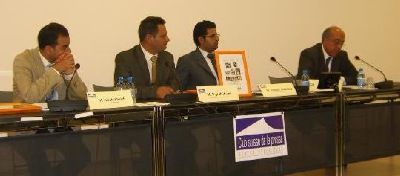
Le chargé d'affaires de Tunisie pour les organisations internationales à Genève Samir Koubaa (à droite, photo pec) s'adresse aux lauréats et à la presse mercredi 8 juin au Club suisse de la presse
CEREMONY OF THE PRESS EMBLEM CAMPAIGN
M. SAMIR KOUBAA, CHARGE D’AFFAIRES, MISSION DE TUNISIE A GENEVE
Je souhaite remercier M. Guy Mettan, Président du Club Suisse de la presse, Mme Hedayat Abdelnabi, Présidente de Press Emblem Campaign, qui, avec l’aimable parrainage de S.E Abdullah Falah Abdullah Al Dosari, Ambassadeur du Qatar a Genève, ont organisé cette brillante cérémonie.
Il m’est agréable de vous exprimer la gratitude pour l’intérêt accordé aux journalistes arabes en général et aux journalistes tunisiens en particulier, à travers les éminents journalistes présents : MM Neji Bghouri, Kaled Said Salah et Ahmed Abdelaziz prix cette consécration. Dans ce contexte historique, les Tunisiens sont particulièrement fiers et reconnaissant devant la manifestation de solidarité de plusieurs pays et d’Organisations internationales et différents partenaires amis qui ont apporté leur attention à la révolution tunisienne et se sont engagés à soutenir la transition démocratique.
L’honneur réservé ce jour aux journalistes tunisiens constitue un message d’appui politique fort à mon pays, en ces circonstances exceptionnelles, ainsi qu’une considération pour la transition démocratique et l’expression d’une solidarité effective avec le peuple tunisien.
C’est dans ce contexte que m’échoit l’honneur de rendre hommage, aujourd’hui, aux journalistes tunisiens qui, en dépit des problèmes et des multiples obstacles rencontrés, continuent de déployer des efforts louables pour promouvoir le rôle de la profession et réunir les conditions appropriées d'une information libre et responsable dans le nouveau contexte politique que vit le pays, tout en veillant à la concrétisation de la déontologie journalistique et à la consolidation du rôle des médias dans le nouvel Etat démocratique.
Nos journalistes sont conscients des nombreux défis à relever : un journalisme crédible et de qualité, la sensibilisation quant aux enjeux et importance des prochaines échéances électorales ainsi que le rôle des médias pour une participation effective de la société civile dans la vie politique et la transition démocratique,…
Ainsi, le Gouvernement de transition s’est engagé à mettre en œuvre les demandes exprimées, à travers la révolution pour la dignité, la liberté et la démocratie, en plaçant les droits de l’homme, dans leur large acception, au centre de ses préoccupations au quotidien et de toutes les institutions du pays. Il œuvre également à conforter la sécurité et à renforcer les institutions dans le pays pour relancer l'économie tunisienne. Toutes ces mesures doivent être prises en respectant les droits fondamentaux et en associant toutes les parties, notamment la société civile, appelée à jouer un rôle important. Autant de défis à relever par la Tunisie, pays aux ressources naturelles limitées et ne disposant pas de mannes financières, mais riche des compétences et du sens de la responsabilité historique de ses citoyennes et de ses citoyens.
Nous sommes néanmoins confiants que nos partenaires ne manqueront pas de consolider le processus de partenariat dans l’intérêt mutuel, car nous sommes convaincus que la réussite de l’expérience tunisienne, à laquelle nous croyons et œuvrons sans relâche, aura un impact certain au-delà des frontières de la Tunisie. Cette réussite, sera aussi celle de nos partenaires devant cette avancée historique et auxquels il revient d’assurer l’accompagnement immédiat, effectif et adéquat.
Le chemin est encore long, nous en sommes convaincus, mais nos choix sont irréversibles et la détermination du Peuple Tunisien constitue le meilleur gage de succès pour un meilleur avenir.
SAMIR KOUBAA
PEC vice-president Mohamed Cherif for the award to Khaled Saleh (LHRS):
Nous sommes heureux d’honorer aujourd’hui le travail remarquable fait par l’ONG Libyenne de défense des Droits de l’Homme » Human Rights Solidarity »
Cette organisation pionnière pour la défense des DH dans un pays verrouillé depuis plus de 40 ans, a le mérite de dévoiler les violations massives du régime du Colonel Kadhafi, pendant que la communauté internationale, pour des motivations stratégiques ou économiques adoptait le silence si ce n’est pas l’excès de zèle pour réhabiliter le régime et rendre son leader fréquentable.
Je rappelle, parmi ses actions, les campagnes soutenues, pour dévoiler le massacre de 1200 détenus à la prison d’Abouslim, et l’aide fournie aux familles des disparus pour des plaintes auprès des mécanismes des DH.
Il faut rappeler que c’est les manifestations des familles des disparus et de leurs avocats qui étaient à l’origine de la révolte du peuple Libyen le 17 fevrier.
Mais le travail que nous honorons en particulier c’est l’effort consenti par des membres de cette organisation, depuis le début de cette révolte, pour relever le défi de créer une agence de presse capable de fournir à la presse internationale une information alternative, et de contrer la propagande du régime.
Avec les moyens du bord, et à partir de leur bureau dans la zone industrielle d’Olten en suisse alémanique, ils ont récolté les informations des différentes régions de Libye, les ont vérifiés , et les ont distribués à la presse internationale.
Il ont fait cela avec beaucoup de professionnalisme et de rigueur : C’est grâce à leurs informations précises, que la presse internationale a annoncé à partir de Genève la chute de la première ville libyenne Al Baida entre les mains des insurgés.
L’autre aspect que l’on veut saluer, concerne l’aide fournie par leurs réseaux à des journalistes désireux de couvrir des zones assiégées comme Zintane et Misrata : le travail fournis par notre confrère de la Radio Suisse Romande à Zintane et notre confrère d’Aljazeera à Misrata en témoigne.
A travers ce geste symbolique ; la PEC qui se bat pour faire reconnaitre l’accès des correspondants dans les zones de conflits sans restrictions et avec des garanties, a choisi de leur témoigner sa reconnaissance.
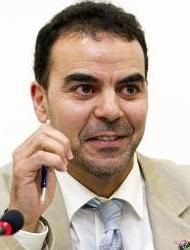
Acceptance speech Libya-Human Rights Solidarity
delivered by Mr. Khaled Said Saleh (photo)
I’d like first of all to thank Press Emblem Campaign for their invitation to us to attend this gathering, and I’d like also to thank you all for being here today.
We present this Award to all Journalists who have been killed in their quest for the truth in the battlefields, and to all those who have suffered and still suffering in the darkness of prison cells, just because they have published details doomed unreasonable in the eyes of those who used to conceal the truth. We present this Award to Ali Aljaber Hasan, Mohammad Nabbus, Kamal Attalu, Rana Alaqbani, Tim Hetherington, and Chris Hondros.
Since its inception in 2000, Human Rights Solidarity organisation adopted the human rights situation in Libya with a clear vision: the effective improvement of human rights situation and defending liberty in a country famous for its brutal tyranny.
Probably the main reason for Human Rights Solidarity’s success is due to its ability in obtaining direct information as a result of its extensive local network.
The role of HUMAN RIGHTS SOLIDARITY in supporting 17th Feb. revolution can be summarised as follows:
· Utilizing the lessons learned from the interaction between the governments and the people in the previous revolutions in Tunisia and Egypt, and implementing the innovative methods of the people to achieve its aspirations and reach its goals.
· Alerting the organizations of International Community, including human rights organizations and media outlets, to the grave consequences of the peaceful demonstrations called for in the internet and sms messages, in a country notorious for its violations of human rights.
· Since we value the importance of information, we have cooperated with Press Solidarity agency, which was formed at the beginning of the revolution, in setting up points and methods of contact in all of the Libyan cities, to report to the outside world all the violations of human rights in a secure way. Alas we have lost one of our members whose name is Abdulmuttaleb Mansur Salama, who was killed on the 25th Feb by the bullets of the security apparatus while covering the demonstration of Tajura in Tripoli.
· Distributing the lists of mobile telephone numbers, satellite telephone numbers, and Skype of the local activists to the international media outlets, to secure continuous influx of information from inside Libya to the outside world.
· Continuously urging the demonstrators, through available media outlets and personal contacts, to preserve the non-violent nature of the demonstrations, but unfortunately the Libyan regime insisted in turning it into a bloody war against its own people.
After the conclusion of the revolution, which we hope will be very soon; HUMAN RIGHTS SOLIDARITY will concentrate its efforts on educating the Libyan people to know their rights, and how to protect them in a proper way, and to monitor any constitutional and jurisdictional violations that may occur during the building up of the new Libya.
Thank you for your attention
Presentation of Dr. Ahmed Abdelaziz by Christian Campiche, member of the PEC board, vice-president impressum (Swiss Federation of journalists), Editor in chief EDITO
Geneva, June 8, 2011
Allow me first to present you. You’re a pharmacist of 28 years old, co-founder of April 6 youth movement, media spokesperson of April 6 youth,
producer and présenter of Citizen scream, program of April 6 online radio in 2008, member of the political office of April 6 movement.
Of what preceeds, we can say that you’re a symbol of what happenend in Egypt since the megaevent on Tahrir Place, that led to the revolution. A
non violent revolution, this has to be said, since the 6th April Movement is based on no violence. This a remarquable example.
All the eyes of the non-arab world were fascinated by this huge movement of faith in democracy and free information. We continue to be fascinated
by what will happen, as we know that it’s never easy to change old habits.
So let’s congratulate you and assure your movement of our solidarity and echo with articles, wishing you to keep this extraordinary spirit of hope
and courage.
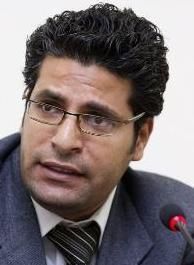
Acceptance speech on behalf of Egypt’s bloggers: Dr. Ahmed AbdelAziz El Sayed (photo)
At the outset I would like to pay tribute to all the fallen militants of the Egyptian revolution, those who fell in Tunisia, Syria, Bahrain, Libya, Yemen, Morocco and Iraq, and I call this august meeting to stand a minute of silence honoring them.
I would like to start by thanking the Press Emblem Campaign (PEC) for its concrete efforts in informing the world of the huge problems and dangers facing journalists and its outright and unwavering relentless support for freedom of opinion and expression around the world.
In this regard, today’s ceremony, which is the third in a row, is crowning the efforts of the PEC and in this regard I would like to thank PEC President Hedayat Abdelnabi, PEC Secretary-General Blaise Lempen and members of the PEC board as well as this august presence.
The Egyptian revolution was the end of a long road started by young bloggers in 2004, and was strengthened by the new social networks since 2008 which allowed the youth to move faster and to have a popular base. The youth worked patiently and with perseverance in order to encourage those who were scared and to awaken those who were still sleeping and to alert them to confront injustice, corruption, torture ignorance and poverty, all were a result of the bad governance of the former regime.
The circle enlarged till we came to the historic day 25 January of this year, the battle for freedom was not restricted to Tahrir square but was also a cyber battle between members of the former National Democratic Party, the NDP, and the liberation youth of Egypt.
The spark was ignited in Tunisia where the Tunisian people with their blood ousted a dictator of ferocious tactics against his own people, hope was there that we could do the same, on Facebook the calls multiplied to follow Tunisia, the regime in Egypt of a dictator was built on Western support and internal repression and intimidation of the Egyptians.
I will always remember till my death the spark of the revolution on 25th January its first moments, my tears flowed, my heart beat accelerated with the resounding sound of thousands in the street singing the national anthem, we all echoed the same sentiments we are there for you Egypt we will not give up and we will not die while each and every one of us knew that he could be shot at any moment.
We marched for the dignity of Egypt, for its people who are living in poverty, for the misery of the Egyptians, for the Egyptians abroad; here we stand for Egypt and the Egyptians.
The real utopia was expressed in Tahrir square, social solidarity was prevailing, all shared bread and pieces of this and that for food, it was the epitaph of national unity, Moslems prayed sheltered by Christians and vice versa, security was at its peak, everybody was guarding everybody and they were millions, the millions were there to protect each other, it was one mind and one heart, and Egyptian.
The militants fell especially on 2 February thugs killed them stampeded them opened fire on them, Egyptians showed on that day the day known as the battle of the camels, exemplary courage on that very difficult day.
Many have left Tahrir square but the revolution is not over there is a lot ahead of us.
I have a message to Western countries: your support for oppressive regimes and corrupt regimes in the Arab region led to prolonging the lifeline of those regimes it was a source of sufferance and bloodshed, listen to the people of the region and support dignity freedom and human rights
It is time that you concede that you have gambled on the wrong people: “the tyrannical regimes”, tyrants are removed but the people will stay; it is time to support the Palestinian people and to allow them to struggle against the occupation so that they can live in dignity, freedom and peace on their land.
PEC PRESS RELEASE (FRENCH, ARABIC AND SPANISH AFTER ENGLISH)
The PEC award 2011 honors leading media and civil society who played a pivotal role in the success of the ongoing Arab Spring
Geneva, 6 June (PEC) – The current Arab uprising since the beginning of the year has led to serious hopes that the dawn is opening for freedom of the press in the Arab region. The world followed this miraculous wave in the Arab region through the dissemination of information by courageous activists. At least ten local and foreign journalists were killed in the line of duty.
The Press Emblem Campaign (PEC) award committee has chosen 3 laureates for its 2011 award. The three awards will be handed on 8 June in Geneva: to the President of the
Tunisian syndicate of journalists
Neji Bghouri, to Ahmed Abdelaziz, representing the bloggers of the revolution of Egypt who made the 25th January revolution a success, to Khaled Said, representative of the Libyan opposition on behalf of the non-governmental-organization NGO
Libyan Human Rights Solidarity (LHRS), based in Switzerland.
In honoring the laureates of the PEC award this year, the PEC pays tribute to the courage of millions of Arabs participating in the current uprising.
In so doing, the PEC also encourages the move towards strengthening the development of independent media institutions in Tunisia, Egypt and Libya.
The PEC will also honor with a certificate Ambassador
Abdullah Falah Abdulla Al-Dosari, permanent representative of the State of Qatar to the UN in Geneva for his supportive role in strengthening the PEC cause.
The PEC board and award committee has chosen
Ahmed Yousuf Behbehani, CEO of the Kuwaiti magazine Al Yaqatha, as Honorary President of the PEC, for his continued support for the PEC prize for three years in a row.
PEC President Hedayat Abdelnabi expressed her belief that the current Arab uprising and the success of the Tunisian and Egyptian revolutions open the way forward for democracies to flourish and for freedom of expression to prevail.
Abdelnabi added that the media casualties in the Libyan conflict, five journalists so far, opens the eyes of UN member states to the fact that media are being confronted with risks and dangers which are unprecedented in a manner that may convince a cluster of states to join the PEC project of a convention to protect journalists in conflict zones and during civil unrest.
PEC Secretary-General Blaise Lempen noted that the current uprisings in Tunisia, Egypt and Libya have shown that new technologies of the Internet age like Facebook, Twitter, YouTube and mobile phones can circumvent measures taken by dictatorships to silence the truth.
“It has been proven that this connectivity has allowed information to flow through the Internet and is a very encouraging development” added
Blaise Lempen.
He stressed that “Human Rights Solidarity-Libya has played a very important and crucial role in informing the world at the outset of the uprising in Benghazi. Through Skype, its officials connected with the opposition in Libya, and sent out videos and information to the world despite the news blackout and the absence of independent journalists”.
The PEC award is an annual award inaugurated in 2009 and goes to individuals and organizations that play an important role for the protection of journalists.
In June 2010 the PEC award went to the victims of the
Maguindanao massacre in the Philippines
and handed to the
Center for media Freedom and Responsibility (CMER), in 2009 the PEC award went to the Palestinian Center for Development and Media Freedoms- MADA - for its role in revealing media restrictions imposed on foreign and local journalists covering the Gaza war.
The PEC award 2011 is sponsored by the mission of the state of Qatar-Geneva, Ahmed Yousuf Behbehani, Hotel Intercontinental-Geneva, Union suisse des journalistes francophones, and the Geneva Press Club.
The laureates of this year’s award will address a news conference at the Geneva Press Club on 8 June at 14:00 hrs.
This event will be followed by the PEC award ceremony.
Le Prix PEC 2011 récompense des militants et organisations ayant joué un rôle-clef dans le succès du "printemps arabe"
Genève, 6 juin (PEC) Les révoltes populaires dans les pays arabes depuis le début de l'année ont soulevé de grands espoirs pour la liberté de la presse. Des militants courageux se sont battus en particulier en Tunisie, en Egypte et en Libye pour donner les informations au reste du monde. Au moins dix journalistes locaux et étrangers ont payé de leur vie l’exercice de leur métier au cours du « printemps arabe ».
Le comité directeur de la Presse Emblème Campagne (PEC) a choisi trois lauréats pour son prix annuel pour la protection des journalistes.
Le prix sera décerné le 8 juin à Genève au président du
syndicat des journalistes tunisiens
Neji BGhouri, à un représentant du
mouvement des blogueurs de la révolution du 25 janvier en Egypte
Ahmed Abdelaziz et à un représentant de l'ONG des opposants libyens en Suisse
Libyan Human Rights Solidarity (LHRS)
Khaled Said.
En décernant ce prix, non seulement la PEC rend hommage au courage des militants qui ont permis aux soulèvements populaires de s'imposer dans ces
trois pays, mais elle veut aussi encourager la consolidation d'organes de presse libres et indépendants en Tunisie, en Egypte et en Libye.
La PEC honore aussi d’un certificat l’ambassadeur du Qatar auprès de l’ONU à Genève
Abdullah Falah Abdullah Al-Dosari
pour son soutien à la cause de la PEC.
Le comité directeur de la PEC a aussi décidé de nommer Ahmed Yousuf Behbehani, PDG du magazine koweïtien Al Yaqatha, président honoraire de la PEC, pour son soutien au prix décerné par la PEC au cours de ces trois dernières années.
La présidente de la PEC
Hedayat Abdelnabi
a exprimé sa conviction que le soulèvement en cours dans les pays arabes et le succès des révolutions en Tunisie et en Egypte ouvrent la voie au développement de la démocratie et de la liberté d’expression dans ces pays.
Abdelnabi a ajouté que les cinq journalistes tués jusqu’ici dans le conflit en Libye doivent ouvrir les yeux des Etats membres de l’ONU sur les risques et les dangers sans précédent auxquels les medias sont confrontés. Ils devraient convaincre des gouvernements de se joindre au projet de la PEC d’élaborer une convention sur la protection des journalistes dans les zones de conflit et de troubles internes.
"Ces soulèvements en Tunisie, en Egypte et au Libye ont montré que les nouvelles technologies internet et de téléphonie mobile, comme Facebook,
Twitter, Youtube peuvent contourner les obstacles mis par des régimes liberticides pour faire connaître la vérité. Cette utilisation d'internet
pour faire circuler l'information dans le monde entier est très encourageante", a déclaré le secrétaire général de la PEC Blaise Lempen.
"L'ONG libyenne en Suisse Libyan Human Rights Solidarity a joué un rôle crucial pour informer l'opinion lors des premiers jours de la révolte à
Benghazi. Elle a permis d'entrer en contact avec les opposants à travers Skype et de diffuser des images vidéo de la révolte, malgré le black-out officiel sur l'information et l'absence de journalistes indépendants sur le terrain", a souligné Blaise Lempen.
Le prix est décerné chaque année par la PEC depuis 2009 à des organisations ou des individus qui ont oeuvré pour renforcer la protection
des journalistes dans le monde. En 2010, une ONG de défense de la liberté de la presse aux Philippines le Center for Media Freedom and
Responsability (CMFR) avait été récompensée et en 2009 une ONG palestinienne MADA.
Le prix est décerné cette année avec le soutien de la Mission du Qatar
auprès de l'ONU à Genève, de l'Association suisse des journalistes
francophones, de l'Hotel Intercontinental, d’Ahmed Yousuf Behbehani et du Club suisse de la presse.
Les lauréats s'exprimeront sur l'évolution du "printemps arabe" lors d'une conférence de presse au Club suisse de la presse, à Genève, à 14h00 le 8 juin, qui précédera la cérémonie de remise du prix.
Arabic version
حملة شعار الصحفي تكرم الصحفيين التونسيين و المدونين المصريين و منظمة التضامن الانساني ليبيا
جنيف 6 يونيو حملة الشارة: أعلنت اليوم الحملة الدولية لشارة حماية الصحفي و مقرها جنيف جوائزها السنوية التي ذهبت إلى الصحفيين التونسيين لمعاناتهم في ظل نظام بن على لأكثر من عقود و "المدونون المصريون" الذين صنعوا نجاح ثورة 25 يناير و إلى منظمة التضامن مع حقوق الانسان-ليبيا لدورها في بث أخبار الثورة الليبية حين انقطعت اخبار ليبيا عن العالم.
و سوف تسلم شهادات -الحملة يوم الأربعاء 8 يونيو في حفل بجنيف- حيث يستلم
شهادة الصحفيين التونسيين نقيب الصحفيين التونسيين ناجي بهجوري. و يتسلم درع "المدونون المصريون" بالنيابة عنهم الدكتور أحمد عبد العزيز، و يتسلم شهادة الشارة بالنيابة عن منظمة تضامن حقوق الانسان – ليبيا خالد صالح.
كما تقدم حملة الشارة شهادتها الفخرية إلى سعادة سفير دولة قطر عبد الله فلاح عبد الله الدوسري المندوب الدائم لقطر في جنيف لدور قطر الرائد في كونها أول دولة في العالم اعترفت بالحكومة الانتقالية في ليبيا و كونها أول دولة سقط لها أول شهيد رئيس قسم التصوير في قناة الجزيرة الشهيد على حسن الجابر الذي لقى حتفه نتيجة كمين نصبته له قوات القذافي، و لدور قناة الجزيرة القطرية في تدعيم ثورات الربيع العربي و نقلها إلى العالم الخارجي فألهبت و الهمت الثوار داخل اوطانهم ببثها المباشر المتواصل لأحداث هذه الثورات التاريخية مما سمح لكل عربي أن يتابعها داخل
و خارج الوطن الكبير –العالم العربي.
و قد اختار مجلس ادارة حملة الشارة الدولية السيد أحمد يوسف بهبهاني رئيس مجلس إدارة و رئيس تحرير مجلة اليقظة الكويتية رئيساً شرفياً للحملة الدولية لدوره الكبير في دعم رسالة الحملة طوال السنوات الثلاث الماضية و في دعمه لحملة الشارة.
فقد أكد السيد بهبهاني بدعمه لحملة الشارة إيمانه و قناعته و التزامه بالدفاع عن الصحفيين في كل أنحاء العالم و الدفاع عن كل قضاياهم التي تتضمن بشكل جوهري حرية الرأي و التعبير.
و قالت حملة الشارة أنه من خلال تكريم الفاعلين في الثورات العربية الناجحة فإنها تقوم بتكريم الربيع العربي بأكمله من المحيط إلى الخليج و بتكريم الملايين من الشعوب العربية التي تناضل الآن من أجل الحرية و
الديمقراطية.
و أضافت أنه في تكريمها للربيع العربي فإن حملة الشارة تشجع الاتجاه تحو تدعيم التوجه نحو مؤسسات اعلامية مستقلة في تونس و مصر و ليبيا و بقية العالم العربي.
و قالت حملة الشارة، في بيانها الصادر اليوم، أن الربيع العربي قد تجدد الأمل ببداية فجر جديد من أجل حرية الصحافة في المنطقة العربية.
و أكدت حملة الشارة أن العالم قد تابع أمواج الربيع العربي من خلال نقل المعلومات بواسطة ناشطين عرب يتمتعون بنوع فريد من الشجاعة و هي لأسباب مجتمعه تكرمهم اليوم لأنهم أعادوا الكرامة للمواطنة العربية.
و اعربت
رئيسة حملة الشارة هدايت عبد النبي
عن ايمانها بأن ربيع
الانتفاضة العربية الحالية و نجاح الثورتين التونسية و المصرية يفتحان الطريق أمام ازدهار حركة الديمقراطية و سيادة حرية الرأي و التعبير في المنطقة العربية.
و أكدت أن ضحايا النزاعات المسلحة من الصحفيين، و بصفة خاصة في النزاع الليبي و هم على الأقل خمسة من الصحفيين بعضهم لاقى حتفه في كمائن نصبتها له قوات القذافي، يفتح ادراك الدول الأعضاء في الأمم المتحدة إلى أن الصحفيين يواجهون في القرن الحالي تحديات و أخطار غير مسبوقة مما قد يقنع عدد من الدول على تكوين نواة مشتركة للانضمام لمشروع حملة الشارة بوضع معاهدة دولية لحماية الصحفيين في مناطق النزاع المسلح و التوتر الداخلي.
و صرح سكرتير عام حملة الشارة بليز ليمبان بأن الربيع العربي المتمثل في نجاح الثورة التونسية و الثورة المصرية و انتفاضة المعارضة الليبية قد أوضح أن تكنولوجيا المعلومات و وسائل الاتصال الاجتماعية مثل الفيسبوك و تويتر و يوتيوب و الهواتف النقالة يمكنها الالتفاف على محاولات الحكومات و النظم الديكتاتورية لمنع اخبار الثورات العربية من الوصول إلى العالم، و أن استخدام هذه الوسائل أفشل الحكومات و هذه الأنظمة في محاولاتهم المستميتة لتقويض الانتفاضة بالصمت و اسكات صوت الحق.
و أكد أن هذه الوسائل الحديثة قد اثبتت فعاليتها في تدفق المعلومات من خلال الانترنت و هو تطور ايجابي للغاية.
و أوضح ليمبان أن منظمة تضامن حقوق الانسان – ليبيا قد لعبت دورا في غاية الأهمية من خلال سكايب عندما قطعت كل الاتصالات بين ليبيا و العالم بواسطة نظام القذافي و أطلعت العالم بالخبر و الصورة و الفيديو عن معارك تحرير شرق ليبيا.
و يذكر
أن جوائز حملة الشارة تمنح سنوياً في شهر يونيو منذ أن بدأ العمل بها في 2009 و تذهب لأشخاص و منظمات تلعب دوراً محورياً في حماية الصحفيين.
و قد ذهبت جائزة الحملة في 2010 إلى أسر ضحايا الصحفيين الذين لاقوا حتفهم في ماجينداناو بالفلبين و ذهبت في 2009 إلى المركز الفلسطيني للحريات و تطوير الاعلام المعروف باسم "مادا"، لرصد الانتهاكات التي تعرض لها الصحفيون خلال حرب اسرائيل في غزة.
و يقوم برعاية حفل جوائز حملة الشارة لسنة 2011 البعثة الدائمة لدولة قطر بجنيف و السيد أحمد يوسف بهبهاني، و فندق انتركونتينتال و اتحاد صحفيي الفراكوفون و نادي الصحافة السويسري.
و
سوف تسلم الشهادات التقديرية للفائزين يوم الأربعاء الموافق 8 يونيو في الساعة الثانية ظهراً بنادي الصحافة السويسري و يتخلل الحفل مائدة مستديرة حول تطورات الربيع العربي.
لمزيد من المعلومات برجاء الاطلاع على موقع حملة الشارة
El Premio de la PEC 2011 recompensa a los militantes y organizaciones que han jugado un papel clave en el éxito de la « primavera árabe ».
Ginebra, jun 6 (PEC) Las revueltas populares en los países árabes desde el inicio del año han suscitado grandes esperanzas para la libertad de la prensa. Valiosos militantes se han batido, particularmente en Túnez, Egipto y Libia, para ofrecer las informaciones al resto del mundo. Al menos diez periodistas locales y extranjeros han pagado con sus vidas el ejercicio de su profesión durante la « primavera árabe”.
El comité de dirección de la Campaña Emblema de Prensa (PEC) ha escogido tres laureados para su premio anual por la protección de los periodistas.
El premio será entregado el 8 de junio en Ginebra al presidente del sindicato de los periodistas tunecinos, Neji BGhouri, a un representante del movimiento de blogueros de la revolución del 25 de enero en Egipto, Ahmed Abdelaziz, y a Khaled Said, representante de la ONG de los opositores libios, la “Suisse Lybian Human Rights Solidarity” (LHRS).
Al conceder este premio, la PEC no solo rinde homenaje al coraje de los militantes que han permitido que los levantamientos se impusieran en tres países, sino además quiere estimular la consolidación de órganos de prensa libres e independientes en Túnez, Egipto y Libia.
La PEC honra asimismo con un certificado al embajador de Qatar ante la ONU en Ginebre, Abdullah Fatah Abudllah Al-Dosari, por su apoyo a la causa de la PEC.
El comité directivo de la PEC ha decidido asimismo nombrar a Ahmed Yousuf Behbehani, PDG de la revista kuwaiti Al Yaqatha, présidente honoraire de la PEC, por su respaldo a los premios concedidos por la PEC en el curso de los últimos tres años.
La presidenta de la PEC, la egipcia Hedayat Abdelnabi, ha expresado su convicción de que el levantamiento en curso en los países árabes y el éxito de las revoluciones en Túnez y en Egipto abren la via al desarrollo de la democracia y de la libertad de expresión en los países árabes.
Según Abdenabi, los cinco periodistas muertos hasta ahora en el conflicto libio deben servir para abrir los ojos a los Estados miembros de la ONU sobre los riesgos y los peligros sin precedentes a los cuales los medias están confrontados. Ellos –añadio- deberían convencer a los gobiernos a unirse al proyecto de la PEC de elaborar una convención sobre la protección de los periodisas en las zonas de conflicto y de disgturbios internos.
« Estos levantamientos en Túnez, en Egipto y en Libia han demostrado que las nuevas tecnologías –Internet y la telefonía movil, así como el Facebook, Twitter, Youtube- pueden contornar los obstáculos puestos por los regímenes draconianos para hacer conocer la libertad. Esta utilización de la Internet para hacer circular la información en el mundo es muy estimulante », ha declarado el secretario general de la PEC Blaise Lempen.
Lempen ha considerado que la ONG libia en Suiza, la « Suisse Libyan Human Rights Solidarity », ha desempeñado un papel crucial en informar a la opinión publica durante los primeros días de la revuelta en Benghazi. Ella a permitido entrar en contacto con los opositores a través de Skype y de difundir imágenes video de la revuelta, a pesar del bloque oficial sobre la información y la ausencia de periodistas independientes sobre el terreno ».
La PEC otorga el premio cada año desde 2009 a organizaciones o individuos que han obrado para reforar la protección de los periodistas en el mundo. En 2010, una ONG de defensa de la libertad de prensa en Filipinas, el Center for Media Freedom and Responsability (CMFR) fue recompenado y en 2009 la ONG palestina MADA.
El premio es otorgado este año con el apoyo de la Misión de Qatar ante la ONU en Ginebra, la Asociación suiza de periodistas francoparlantes, el Hotel Intercontinental, el Club suizo de la Prensa y Ahmed Yousuf Behbehani.
Los laureado ofrecerán sus puntos de vista sobre la evolución de la “primavera árabe”, en una conferencia de prensa que precederá la ceremonia de entrega del premio en el Club suizo de prensa, en Ginebra, a las 14h00 el 8 de junio.
PEC AWARD 2010 - PEC AWARD 2010 - PEC AWARD 2010 - PEC AWARD 2010 - PEC AWARD 2010
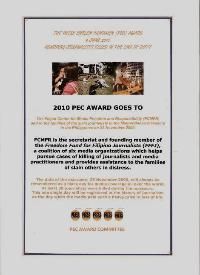
PEC award 2010 goes to the families of the victims of the 32 slain journalists in the Philippines massacre of 23 November 2009 and to the Center for Media Freedoms and Responsibility (CMFR) Manila, the Philippines as well as to the Ambassador of Egypt to the UN in Geneva Hisham Badr
Le Prix PEC 2010 pour la protection des journalistes est décerné aux familles des 32 journalistes tués le 23 novembre aux Philippines, au Centre pour la liberté et la responsabilité des medias aux Philippines (CMFR) ainsi qu'à l'ambassadeur d'Egypte à l'ONU à Genève Hisham Badr.
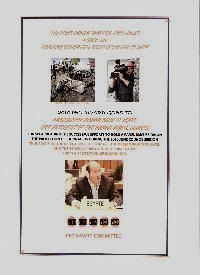
El Premio PEC 2010 por la protección de los periodistas fue concedido a los familiares de 32 periodistas caídos el 23 de noviembre durante una matanza en Filipinas, al Centro para la libertad y la responsabilidad de los medios en Filipinas (CMFR) así como al embajador de Egipto ante la ONU en Ginebra, Hisham Badr. (photos: PEC certificates delivered at the PEC award ceremony June 4, 2010, 6pm, Palais des Nations, Geneva, to the CMFR and Egyptian Ambassador)
A thank u letter to the PEC from the daughter of a slain journalist in the
> Mangudadatu convoy,
>
> On Mon, Feb 7, 2011 at 1:59 PM, Ma.Reynafe Castillo <.*nenen212@yahoo.com*<nenen212@yahoo.com>>
> wrote:
> To the Organizers of PEC Award:
>
> In behalf of JUSTICE NOW! the organization of families of slain journalist
> in Maguindanao Massacre, I would like to say thank you for the award you
> have given us. I read the said award through internet and I personally was
> so grateful for your acknowledgment on our fight in seeking justice for our families.
>
> I am Ma. Reynafe Momay Castillo, the daughter of the missing victim in that incident. My father Reynaldo Momay, who was a photojournalist of a a local newspaper here in our place, who''s remains still missing. My father was with the convoy of Mangudadatu along with other journalist who tried to cover the filing of candidacy of Ismael Mangudadatu. I cannot file a case
against against the perpetrators because according to our law, no body means no crime. My heart really feel the pain of what happened. I lost a father whom i love.
>
> I will keep fighting to get justice for my father. I will not give
> up..Thank you to people like you who inspired mwe to go on.
>
> please watch the link below..It is in Filipino dialect but has sub titles
> in English.
> *
> **http://vimeo.com/18738514* <http://vimeo.com/18738514>
>
> Very Truly yours,
> Ma. Reynafe Momay Castillo
Read below the PEC statement (English, French, Spanish) and speeches for the award ceremony June 4, 2010 in Geneva: CMFR and Egyptian Ambassador's acceptance speeches, PEC SG and PEC moderator of the award ceremony speeches.
Photos of the PEC award ceremony at the United Nations, Geneva
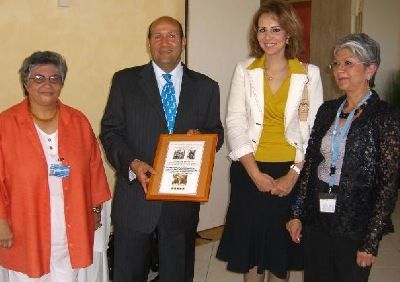
Hedayat Abdel Nabi, PEC President, Hisham Badr, Ambassador of Egypt to the UN and vice-president of the Human Rights Council, his wife, Kyra Nunez-Johnsson, moderator of the PEC award ceremony (photos PEC)
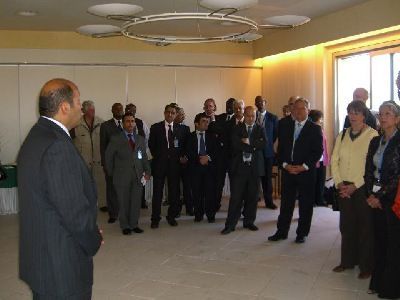
Diplomats and journalists listening to the speech of Ambassador of Egypt. Participants observed a minute of silence to remember journalist killed
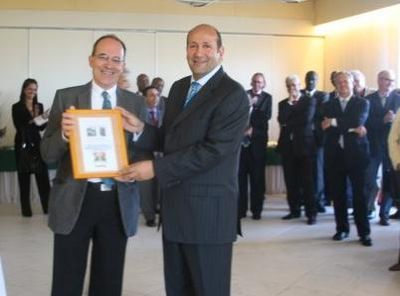
Journalists at the PEC award ceremony on the roof of the UN building in Geneva: Denis Rousseau (AFP Bureau Chief), Virginia Hebrero (EFE Bureau Chief), Lisa Schlein (ABC News, Voice of America), John Zaracostas (president of Association of Correspondents Accredited to the United Nations (ACANU).
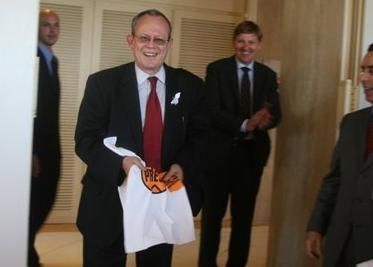
Frank La Rue, UN Special Rapporteur for the Freedom of Expression at the PEC award ceremony, with a T-shirt of the PEC
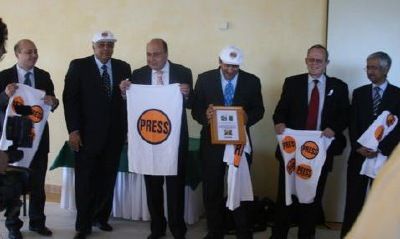
Diplomats of Mexico, Egypt, Bangladesh who have sponsored the panel on protection of journalists organized on the same day at the Human Rights Council and Frank La Rue received a souvenir of the PEC - so they do not forget the journalists killed (see our page PEC NEWS for the panel)
The Center for Media Freedom and Responsibilty (the Philippines) sent a video message to the participants at the PEC award ceremony. Read the messsage below

PHILIPPINES, 23 NOVEMBER 2009 - IN MEMORIAM OF THE WORST MASSACRE IN ONE DAY IN THE HISTORY OF JOURNALISM - THE PEC PRIZE GOES TO THE FAMILIES OF THE 32 SLAIN JOURNALIST through the Freedom Fund for Filipino Journalists, Inc. (FFFJ) and the Center for Media Freedom and Responsibility (CMFR), Manila

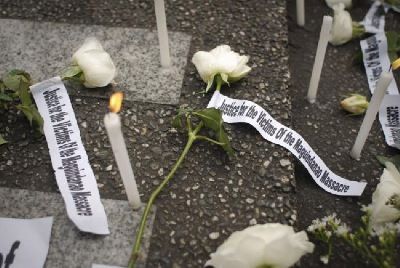
French and Spanish texts after English
PEC press release: PEC award 2010 goes to the families of the victims of the 32 slain journalists in the Philippines massacre of 23 November 2009 and to the Center for Media Freedoms and Responsibility (CMFR) Manila, the Philippines as well as to the Ambassador of Egypt to the UN in Geneva Hisham Badr
GENEVA, June 3 (PEC). The Press Emblem Campaign (PEC), on behalf of the PEC AWARD COMMITTEE, announces that the PEC 2010 Award goes to the families of the 32 slain journalists in the 23 November 2009 Maguindanao massacre in the Philippines, and earmarked to the Center for Media Freedom and Responsibility (CMFR) fund for allocating the amount according to the outstanding needs of the families.
The PEC 2010 Award also goes to the Center for Media Freedom and Responsibility (CMFR) for its outstanding work since 1991 when it started a data base on journalists killed since 1986 when the Philippines toppled the Marcos dictatorship.
The PEC also recognizes this year the work of the CMFR as secretariat for the Freedom Fund for Filipino Journalists, Inc. (FFFJ) which was founded in 2003, and its management of its programs, providing administrative and technical services for media defense, legal prosecution of suspects in cases of journalists killed as well as humanitarian outreach for the
families of victims.
The Press Emblem Campaign in designating its award to the CMFR acknowledges its courageous efforts in the field of freedom of opinion and expression and the defense of journalists for a quarter of a century in a difficult political context.
The PEC 2010 Award has also been designated to Ambassador Hisham Badr, Egypt’s representative to the United Nations Office in Geneva, for his dedication and unrelentless efforts to make the Panel Discussion on the Protection of Journalists in Armed Conflict a reality. The panel starts tomorrow Friday 4th of June at 10:00 hrs Geneva Central Time and it will be webcast by the United Nations.
Ambassador Badr is a leading Egyptian, Arab and African diplomat, who has been and continues to be responsive to the intricate ties between the media and diplomacy and is a firm believer that there is no diplomacy without media and vice versa.
Ambassador Badr and his team worked closely with Bangladesh and Mexico to bring to the forefront the panel discussion and hence focus the world’s attention through the Human Rights Council on the global issue of the protection of journalists and the global threats and their changing nature in war zones in the 21st century.
The PEC 2010 Award certificates will be handed to the recipients in a ceremony Friday 4th of June at the Palais des Nations. June 4 marks the anniversary of the creation of the Press Emblem Campaign in 2004.
PEC’s president Hedayat Abdel Nabi said that the PEC Award which was launched for the first time on June 4th 2009 highlights an outstanding contribution by an individual or an organization that has during the past year serviced the noble cause of protecting journalists and honoring those who were killed in the line of duty.
PEC’s Secretary-General Blaise Lempen stressed that since the beginning of this year, not even six months into the year, 48 journalists have being killed in the line of duty. 2009 marked a record loss in media casualties with 122 journalists. Lempen added that since June 2006 when the Human Rights Council was established more than 400 journalists found death in the line of duty.
PEC considers as an urgent need for the international community to address such a threat to the profession of journalism and a serious obstacle to the enjoyment of freedom of expression and opinion.
The PEC 2010 Award is sponsored this year by the Sergio Viera De Mello Foundation, the Council of Arab Ambassadors and the Kuwaiti chairman and publisher of Al Yaqza magazine Mr. Ahmed Yusuf Behbehani.
Le Prix PEC 2010 pour la protection des journalistes est décerné aux familles des 32 journalistes tués le 23 novembre aux Philippines, au Centre pour la liberté et la responsabilité des medias aux Philippines (CMFR) ainsi qu'à l'ambassadeur d'Egypte à l'ONU à Genève Hisham Badr.
Genève (PEC), 3 juin - La Presse Emblème Campagne (PEC), au nom du comité du prix PEC, annonce que le prix PEC 2010 pour la protection des journalistes est attribué aux familles des 32 journalistes tués le 23 novembre dans le sud des Philippines, et destiné au Fonds géré par le Centre pour la liberté et la responsabilité des medias aux Philippines (CMFR) en fonction des besoins des familles.
Le Prix PEC récompense cette année le travail remarquable effectué depuis 1991 par l'ONG philippine CMFR, qui tient à jour une base de données sur les agressions commises contre les journalistes aux Philippines depuis les années de la dictature Marcos.
Le CMFR joue également le rôle de secrétariat du Fonds pour les journalistes philippins (FFFJ), créé en 2003, gère ses programmes, fournit une assistance juridique et technique pour la défense des medias, l'action en justice contre les auteurs de crimes contre les journalistes et une aide humanitaire en faveur des familles.
En récompensant le CMFR, la PEC rend hommage aux efforts de cette ONG dans le domaine de la liberté d'expression et pour la défense des journalistes pendant près d'un quart de siècle dans un contexte politique difficile.
Le Prix 2010 de la PEC va également à l'ambassadeur d'Egypte à l'ONU Hisham Badr pour le remercier de ses efforts afin d'organiser au Conseil des droits de l'homme un débat public sur la protection des journalistes en situation de conflit. Le débat est organisé ce vendredi 4 juin à l'ONU à Genève et webcasté.
L'ambassadeur Badr est un diplomate égyptien, arabe et africain de premier plan, sensible aux liens étroits entre les medias et la diplomatie, et un fervent partisan d'une diplomatie d'ouverture. L'ambassadeur et son équipe ont travaillé étroitement avec le Bangladesh et le Mexique pour que le Conseil des droits de l'homme porte son attention sur le problème important de la protection des journalistes confrontés à de nouvelles menaces de nature complexe dans les zones de conflit au XXIe siècle.
Les certificats du Prix PEC seront remis aux récipiendiaires ce vendredi lors d'une cérémonie au Palais des Nations. Le 4 juin marque l'anniversaire de la création de la PEC comme ONG en 2004.
La présidente de la PEC Hedayat Abdel Nabi a expliqué que le prix PEC lancé l'an dernier vise à encourager la contribution d'un individu ou d'une organisation qui au cours de l'année écoulée a aidé à sensibiliser au problème de la protection des journalistes et est un hommage à tous les employés des medias tués dans l'exercice de leur profession.
Le secrétaire général de la PEC Blaise Lempen a expliqué que, depuis le début de cette année, au moins 48 journalistes ont été tués dans l'exercice de leur métier. L'an dernier, un record de 122 journalistes avaient été tués dans une trentaine de pays dans le monde. Depuis la création du Conseil des droits de l'homme en juin 2006, plus de 400 journalistes sont morts pour informer l'opinion.
Le Prix PEC est soutenu cette année par la Fondation Sergio Vieira de Mello, le Conseil des ambassadeurs arabes et l'éditeur du magazine koweïtien Al Yaqza Ahmed Yusuf Behbehani.
El Premio PEC 2010 por la protección de los periodistas fue concedido a los familiares de 32 periodistas caídos el 23 de noviembre durante una matanza en Filipinas, al Centro para la libertad y la responsabilidad de los medios en Filipinas (CMFR*) así como al
embajador de Egipto ante la ONU en Ginebra, Hisham Badr.
Ginebra, 3 jun (PEC) La Campaña Emblema de Prensa (PEC), a nombre del Comité del Premio PEC, anuncia que el premio PEC 2010 por la protección de los periodistas ha sido atribuido a los familiares de los 32 periodistas asesinados el 23 de noviembre en el sur de Filipinas. Asimismo, el premio ha sido destinado al Fondo administrado por el Centro para la libertad y la responsabilidad de los medios en Filipinas (CMFR) en función de las necesidades de las familias.
Adicionalmente, el premio Premio PEC 2010 se concede al CMFR por el destacado trabajo realizado por esa ONG desde 1991, cuando dio inicio a una base de datos sobre los periodistas asesinados desde 1986 cuando Filipinas derrocó a la dictadura de (Ferdinando) Marcos.
La PEC reconoce –asimismo- el trabajo del CMFR en tanto que secretariado para el Fondo para la Libertad de los Periodistas Filipinos (FFFJ), establecido en 2003, el cual administra sus programas, ofrece asistencia jurídica y técnica para la defensa de los medios, la acción en justicia contra los autores de crímenes contra periodistas y una ayuda humanitaria a favor de sus familiares.
Al recompensar al CMFR, la PEC rinde homenaje a los esfuerzos de esta ONG en el terreno de la libertad de expresión y por la defensa de los periodistas durante casi un cuarto de siglo en un contexto político difícil.
El Premio PEC 2010 ha sido también asignado al Embajador de Egipto ante la ONU en Ginebra, Hisham Badr, por su dedicación y encomiados esfuerzos para la realización en el Consejo de Derechos Humanos de la ONU de un debate sobre la Protección de los Periodistas en Conflictos Armados.
Ese panel tendrá lugar este viernes 4 de junio a las 10:00 am, en Ginebra, y podrá ser seguido en director por el webcast de la ONU.
El embajador Bard es un diplomático egipcio, árabe y africano de primer rango, partidario de una diplomacia de apertura y una persona sensible a mantener lazos estrechos entre los medios y la diplomacia.
El embajador y su equipo han trabajado estrechamente con México y Bangladesh para que el Consejo de Derechos Humanos preste atención al importante problema de la protección de los periodistas confrontados a nuevas amenazas de naturaleza compleja en las zonas de conflicto en el siglo XXI.
Los certificados del Premio PEC serán entregados a los galardonados este viernes durante una ceremonia en el Palacio de Naciones. El 4 de junio marca el aniversario de la creación de la PEC.
La Presidenta de la PEC, Hedayat Abdel Nabi, ha explicado que el premio PEC –lanzado el pasado año- tiende a estimular la contribución individual o de una ONG que durante el año transcurrido ha ayudado a sensibilizar acerca del problema de la protección de los periodistas. Al mismo tiempo, es un homenaje a todos los trabajadores de los medios asesinados en el ejercicio de su profesión.
El Secretrio general de la PEC, Blaise Lempen, por su parte, ha hecho hincapié en que desde el inicio de este año, al menos 48 periodistas han perdido la vida en el ejercicio de su profesión. El pasado año se reportó un récord de 122 periodistas asesinados en una treintena de países. Y, más de 400 han muerto desde la creación del Consejo de Derechos Humanos, en junio de 2006.
El Premio PEC está patrocinado por la Fundación Sergio Vieira de Mello, el Consejo de Embajadores Árabes y el presidente y editor de la revista kuwaití Al Yaqza, Ahmed Yusuf Behbehani.
Speech of Ambassador of Egypt to the UN Hisham Badr, June 4
"Ladies and Gentlemen,
I would like to start by expressing my deep appreciation to the distinguished members of the Press Emblem Campaign for having organized this event. I am particularly humbled by the welcoming words of those who spoke before me. I have been following with great interest and admiration the work of this respectable and noble organization dedicated to promoting the protection of journalists worldwide. I commend the PEC for this initiative and for dedicating the 4th of June as an annual remembrance day for journalists who have fallen in the line of duty, while trying to shine a light on the darkest corners of atrocities and corruption around the globe.
For over seven years, the PEC has been a strong and effective advocate for this lofty cause. Its founders, Hedayat Abdel-Nabi and Blaise Lempen, deserve every praise for their work. Together with their fellow members of the committee of the PEC, they dedicatedly assembled a force that is well recognized today in Geneva’s diplomatic and media circles. This energetic and evolving force is gaining ground year after year and achieving results which are to be applauded.
It is impressive that the PEC movement, which was the brainchild of journalists covering the UN in Geneva, has succeeded in anchoring to its cause and principles journalists and activists from all over the world. While this growing global movement was largely Geneva-based, living in peaceful Geneva did not isolate its members from the challenges facing their colleagues in often deadly circumstances.
The PEC’s aspiration to transform ideas into laws is legitimate. The greatest proof of its validity and urgency is the latest assault on journalists accompanying the Gaza flotillas, when bullets pounded at them in the middle of the high seas. The 34 Turkish journalists and 26 international journalists on board carried neither guns nor ammunition, but were nevertheless assaulted and their equipment confiscated, before being transferred to Israeli detention facilities.
Distinguished guests,
Since my appointment in September 2008 as Permanent Representative of Egypt, I have been truly impressed by the genuine efforts of Hedayat, who herself was a war correspondent during the Lebanese war, and by her dedication to the cause. Not one week would pass without me receiving updates on the situation of journalists and the dangers they face worldwide, and a count of those journalists who have paid the ultimate price for endeavoring to unveil the truth to the world.
Ladies and Gentlemen,
Egypt has been at the forefront of countries calling for enhanced efforts at all levels for the protection of civilians in armed conflicts. We introduced this initiative in the former Commission on Human Rights in 2005 and have since pursued the matter in the Human Rights Council, which adopted in September 2008 an important resolution 9/9 co-sponsored by 74 countries. In this resolution, Egypt reaffirmed the view that international human rights and humanitarian laws were complementary, and drew the attention of the Council to the need to address through its various mechanisms the violations taking place during armed conflicts. In addition, in September 2009, together with the United States, Egypt presented an important resolution 12/16 on freedom of opinion and expression which helped regain consensus on this important matter in the Council. This resolution saw the Council calling on all parties to armed conflict to respect international human rights laws, the provisions of which extend protection to journalists in armed conflict zones, and to allow, within applicable rules and procedures, media access and coverage in situations of international and non-international armed conflicts.
It was therefore natural that Egypt would respond favorably to the requests of the PEC for drawing the attention of the Human Rights Council to the important issue of the protection of journalists in armed conflicts. Together with the active delegations of Bangladesh and Mexico, we presented last March a resolution calling for the organization of the first-ever panel on the subject in the Human Rights Council. This resolution was fortunately well received by all council members and observers, as there was a general feeling that the time has come to shed light on the real dangers faced by journalists in carrying out their vital role. It was our shared hope that the panel would represent the beginning of a collective reflection on the way the Council could respond to this important topic in the future. I am particularly pleased that the discussions this morning were very productive and witnessed a wide participation by states and civil society.
Ladies and Gentlemen,
In closing, I would like to express again my deepest sentiments of appreciation and gratitude and say that this award means a great deal to me.
At a time when more journalists are being targeted for death than ever before for upholding basic human rights worldwide, a lack of attention and action only serves to embolden the killers. The least we can do in the name of the many hundreds of journalists who have died and those who will go daily into danger on behalf of us all is to work hand in hand on devising and advancing every instrument of protection available to us for these fallen heroes. I am happy to have been able to support a cause I believe in and which my country fully champions, not to mention my involuntary affinity to the cause due to the fact that my spouse is a journalist.
It is my sincere hope that today’s panel will mark an important turning point that would in the end contribute to the strengthening of the credibility and effectiveness of the Council and in giving more people a feeling of ownership of its agenda and a belief in its efficacy in dealing with new and emerging challenges. What we witnessed this morning was a historic first step, which will encourage future reflection on how to achieve concrete results that would make a difference to journalists and their families. Rest assured that we will walk this road together. We will continue to support your cause and will spare no effort to cooperate with you in this regard.
Thank you."
Acceptance Speech of the CMFR
- Melinda De Jesus - Executive Director
We accept with thanks Press Emblem Campaign Prize for 2010 and the recognition it gives to our work as well as the need for protection of journalists and press freedom in the Philippines.
The Philippines is a democracy where we hold regular elections and where no less the Constitution provides protection of journalists and the press from government control.
So we have the protection of documents and of laws, but conditions of which reflects a culture of impunity that arises from the weakness of the rule of law, corruption and the positing of resources affecting police investigations and the judicial process itself. Filipino journalists may enjoy status and influence but the culture of violence can make killings so easy, making journalists, especially those working in the countryside, vulnerable to attacks and threats.
The killing of Filipino journalists has become a national scandal. The Center for Media Freedom and Responsibility’s database counts 114 journalists killed in the line of duty in the last 24 years.
This award reminds everyone that developing democracies take a long time to grow the institutions that will ensure the safety of citizens. The massacre of 32 journalists in the province of Maguindanao last year showed that there is no safety in numbers when killers belong to a powerful clan who feel that they can get away with anything.
The challenge now is to be able to extend some humanitarian assistance to the orphans and widows of the victims and to make sure that the prosecution of the suspects will not be stalled.
CMFR’s engagement also involves media monitoring as a way of establishing ethical norms for the conduct of the press as well as recognition of good works and best practices. In our 20 years of experience, we may not be able to solve all the problems but we have broken new ground to promote both freedom and responsibility as both have to go hand in hand if press freedom is to be meaningful in a democracy.
We are therefore thankful to the PEC and the encouragement that the award provides. The work is difficult and it helps to know that it is valued by others. We acknowledge with thanks the valuable partnership of the members of the Freedom Fund for Filipino Journalists, a national network that assists besieged journalists and the victims of the slain. We take this chance to thank also those who have extended funding to these efforts. We will add the prize to the fund supporting the families of the victims of the massacre in Maguindanao.
Again, in behalf of the Board of Trustees of the CMFR and the hardworking staff that has made it possible for the Center to be engaged in so many ways, our deepest thanks.
Intervention of PEC moderator for the PEC 2010 Award
Kyra Nunez Johnsson
Six years ago, on a day like this fourth of June, the Press Emblem Campaign was created and a vigorous campaign was launched to protect our colleagues in journalism from being targeted in armed conflicts around the world.
The statistics speak for themselves. In the first five months of this year no less than 48 journalists have been killed in the line of duty in 13 countries. Last year; 122 journalists were killed, a very sad record. Let me remind you that, on average, every third day a journalist is killed. Since the Human Rights Council was created in 2006,
more than 400 media workers have lost their life in wars, armed conflicts, ambushed by paramilitary groups or killed by drug traffickers.
Let us render them homage by standing up and solemnly honor them with a minute of silence.
Judging by the statistics, Mexico sadly remains the most dangerous place for journalists, even though Honduras is now not far behind. They are joined by countries and territories near and far - Afghanistan, Colombia, the Gambia, the Gaza strip, Iran, Nepal, Iraq, Nigeria, Pakistan, the Philippines, the Russian Federation, Somalia, Sri Lanka, Thailand, Venezuela, Bulgaria, Cyprus, Angola and Yemen - where journalists are killed, either national or foreigners, women and men working for major global media outlets or more modest local newspapers. Latin America remains the foremost killing field for journalists.
Denouncing the brutal killings will not put an end to those heinous crimes, but in just six years, the PEC, since its creation, it has become a major voice demanding protection and rules to be applied for the protection of those journalists covering news in dangerous places, often in war like situations.
Exactly a year ago and on the same day on 4 June 2009, the Press Emblem Campaign started to give public recognition to those who help advance understanding for the need to protect journalists in armed conflicts. As we will witness in the next hour, the PEC 2010 Awards will be handed over to the families of the 32 journalists killed in the Philippines in November 2009 together with the Center for Media Freedom and Responsibility, and to Egyptian Ambassador Hisman Badr. As it was the case last year, we will give recognition to victims as well as to an individual who, by way of diplomacy, is pushing for the respect of the lives of journalists and of the universal human right to inform and to be informed.
Two events mark earmark today’s particular ceremony; first, the holding this morning of the panel discussion on the protection of journalists in armed conflicts in parallel with the session of the Human Rights Council, second, the forthcoming granting of Consultative Status to PEC by the United Nations Organization’s ECOSOC. Those two events demonstrate the importance that PEC holds today nowadays. We will have an opportunity to dwell in these issues during this opening ceremony. And so, let us start!
Speech of the PEC SG Blaise Lempen at the award ceremony, Geneva
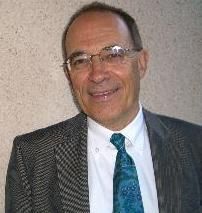
"MM les Ambassadeurs, Madames les présidentes, Mesdames et Messieurs, chers membres du comité, chers collègues,
C'est la deuxième fois que nous sommes réunis pour décerner le prix de la PEC pour la protection des journalistes. A la différence des prix qui récompensent des journalistes, nous sommes une organisation de journalistes qui récompensons ceux qui aident les journalistes: individus, associations ou organisations.
Lorsque nous avons créé notre ONG, il y a six ans exactement, le 4 juin 2004, avec une douzaine de correspondants accrédités à l'ONU, nous réagissions à une situation intolérable: la mort dans le conflit irakien de plusieurs dizaines de journalistes. L'on aurait pu espérer que la sécurité une fois rétablie en Irak, le nombre de victimes allait baisser.
Hélas, d'autres conflits, d'autres attentats-suicide ont suivi: au Pakistan, en Afghanistan, en Somalie, à Gaza, au Sri Lanka. Depuis le début de l'année, déjà 48 journalistes sont morts pour avoir exercé leur profession, dans des manifestations comme en Thaïlande, dans des conflits prolongés comme en Somalie, en Afghanistan et dans le Caucase russe, dans des crises internes comme au Honduras et au Mexique. Des assassinats de journalistes ont été commis dans près d'une trentaine de pays l'an dernier, avec un record de 122 journalistes tués. Le comité de la PEC a été particulièrement révolté par l'assassinat en un seul jour, le 23 novembre, de 32 de nos confrères dans le sud des Philippines: un chef local a conçu ce massacre de masse pour éliminer son adversaire aux élections alors qu'il se rendait en convoi pour déclarer sa candidature.
Ce massacre particulièrement atroce a incité la PEC à consacrer le prix de cette année au Fonds d'aide aux familles des 32 journalistes tués ainsi qu'à l'ONG qui gère ce fonds aux Philippines, le Centre pour la liberté et la responsabilité des medias aux Philippines (CMFR). Active depuis la dictature Marcos, cette ONG fait un travail remarquable de documentation des agressions commises contre les journalistes, très nombreuses sous la présidence Aroyo, fournit une assistance juridique et technique pour la défense des médias, une action en justice contre les auteurs de crimes contre les journalistes et une aide humanitaire en faveur des familles.
En récompensant le CMFR, la PEC rend hommage aux efforts de cette ONG dans le domaine de la liberté d'expression et pour la défense des journalistes pendant près d'un quart de siècle dans un contexte politique difficile.
Le Prix 2010 de la PEC va également à l'ambassadeur d'Egypte à l'ONU Hisham Badr pour le remercier de ses efforts afin d'organiser au Conseil des droits de l'homme un débat public sur la protection des journalistes en situation de conflit. Il nous a ainsi aidé à sensibiliser les gouvernements à cette problématique, hélas trop souvent négligée. Nous espérons que le débat qui a eu lieu ce vendredi au Conseil ne sera pas seulement une étape historique pour la protection des medias et pour le Conseil, mais qu'il ouvrira la voie à des mesures concrètes faisant à l'avenir la différence.
Les journalistes jouent un rôle essentiel d'information sur les violations des droits de l'homme et du droit humanitaire. Sans témoins indépendants, crédibles, impartiaux, ces violations passeraient inaperçues.
L'ambassadeur Badr est un diplomate égyptien, arabe et africain de premier plan, sensible aux liens étroits entre les medias et la diplomatie, et un fervent partisan d'une diplomatie d'ouverture. L'ambassadeur et son équipe ont travaillé étroitement avec le Bangladesh et le Mexique pour que le Conseil des droits de l'homme porte son attention sur le problème important de la protection des journalistes confrontés à de nouvelles menaces de nature complexe dans les zones de conflit au XXIe siècle.
Je veux encore remercier ceux qui ont soutenu financièrement ce Prix cette année: la Fondation Sergio Vieira de Mello, le Conseil des ambassadeurs arabes et l'éditeur du magazine koweïtien Al Yaqza Ahmed Yusuf Behbehani.
Nous avons aujourd'hui le grand plaisir de remettre aux récipiendaires notre prix 2010. Le Centre philippin nous a adressé un message que la présidente de la PEC Hedayat Abdel Nabi va maintenant vous lire."
FIRST PEC AWARD 2009 FOR THE PROTECTION OF JOURNALISTS GOES JOINTLY TO THE PALESTINIAN CENTER FOR DEVELOPMENT AND MEDIA FREEDOMS (MADA) AND TO THE MEXICAN AMBASSADOR AT THE UN IN GENEVA LUIS ALFONSO DE ALBA
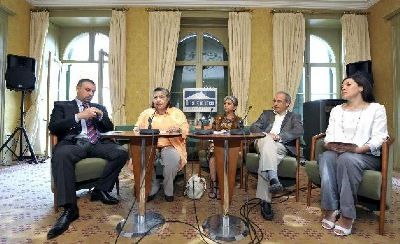
The first PEC award ceremony at the Swiss Press Club, Geneva, June 4th 2009 (photos keystone mtrezzini)

The certificates delivered to MADA and ambassador Luis Alfonso De Alba, at the award ceremony June 4th (other photos below)
For the PEC statement *English, French, Spanish*, speeches of Ambassador De Alba, Mada representative, PEC President and PEC Secretary-General: go below after honouring our collleagues
IN MEMORIAM / IN MEMORIAM / IN MEMORIAM / IN MEMORIAM
Daniel Pearl, kidnapped and killed in Karachi / Pakistan, January 30, 2002
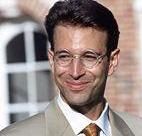
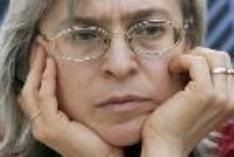
Anna Politkovskaia, killed in Moscow October 6th, 2006
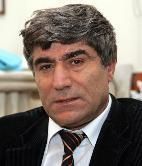
Hrant Dink, killed in Istanbul January 19, 2007
Shihab al-Tamimi, killed in Baghdad February 27, 2008, president of the Iraqi Syndicate of Journalists and PEC co-founder
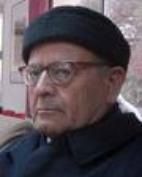
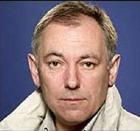
Terry Lloyd, killed in Iraq March 22, 2003
Serge Maheshe, killled in DRC June 13, 2007
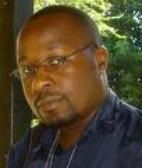
Samir Kassir, killled in Lebanon, June 2nd, 2005
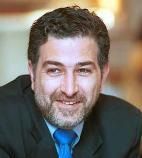
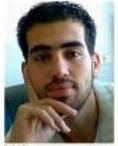
Fadel Shana, killed in the Gaza strip, April 16, 2008
Jean Dominique, killled in Haiti, April 3rd, 2000
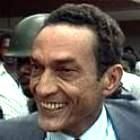
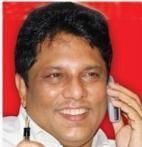
Lasantha Wrickramatunga, killed in Colombo, January 8, 2009
Mazen Dana, killed August 17, 2003, in Iraq
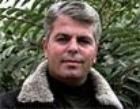
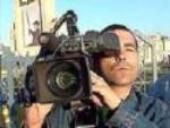
Jose Couso, killed April 8, 2003, Hotel Palestine, Baghdad
MANY OTHERS MUST BE HONOURED: VISIT OUR "TICKING CLOCK"
PEC statement - French and Spanish texts after English
Speeches of Ambassador De Alba and Mada representative, PEC president and PEC secretary-general after the PEC statement
FIRST PEC AWARD FOR THE PROTECTION OF JOURNALISTS GOES JOINTLY TO THE PALESTINIAN CENTER FOR DEVELOPMENT AND MEDIA FREEDOMS (MADA) AND TO THE MEXICAN AMBASSADOR AT THE UN IN GENEVA LUIS ALFONSO DE ALBA
GENEVA, June 4 (PEC) – The Press Emblem Campaign (PEC) Award Committee, designating for the first time an Award for the Protection of Journalists, decided that it’s Award for outstanding efforts in the media protection field goes jointly to the Palestinian Center for Development and media Freedoms (MADA) and to Mexican Ambassador at the UN in Geneva Luis Alfonso De Alba.
The PEC Award was designated to MADA, based in Ramallah, for its outstanding role in providing accurate and detailed information about the siege of journalists in Gaza and outside Gaza during the war from 27 December 2008 to 18 January 2009, when the media was not allowed to enter Gaza to cover the war.
In addition, MADA documents on a daily basis the working conditions of journalists in an extremely dangerous zone that is the occupied Palestinian territories (oPt).
In carrying out its mission, MADA has proven even handedness, impartiality and a neutral coverage on media violations by all parties within and outside the oPt, a courageous outlook that deserves serious acknowledgment.
The decision to split the PEC Award between MADA and the Mexican Ambassador at the UN in Geneva Luis Alfonso De Alba was a result of Ambassador’s De Alba’s efforts and dedication to flag the issue of the protection of journalists in conflict zones among his colleagues on the level of ambassadors by launching an informal consultation process on ways and means forward to enforce and in an attempt to put in place new ideas to protect journalists.
The Mexican Ambassador’s endeavors assisted the PEC to carry its serious commitment for new legal binding clauses to the attention of the diplomatic community and hence through them to the international community.
Ambassador De Alba’s efforts were the first efforts in this regard which presented a shinning image of his country, Mexico.
Though his country, Mexico, represents one of the most dangerous places in the world for media work, Ambassador De Alba has flagged his country as a defender of rights by launching the Convention on Disabilities, a process that was difficult at the beginning then turned to be the most successful by assembling all the international community behind the Convention, a process of inspiration for the PEC Campaign.
The PEC Awards will be received today Thursday 4 June 2009 at the Swiss Press Club on the occasion of the 5th anniversary of the PEC.
The Award Ceremony is sponsored by the Norwegian Ministry of Foreign Affairs, the Kuwaiti magazine Al Yaqatha spearheaded by Ahmed Yusuf Behbehani and the Swiss Press Club.
PEC President Hedayat Abdel Nabi
said that the 5th anniversary of the PEC marks a turning point in its work.
She added that the PEC has developed ideas, set them for discussion, and today it renews its 1000 miles journey for respect for the fallen journalists by mobilizing through its Award and the Remembrance Day a new momentum to carry the process forward.
The Award ceremony also marks the victims of the media community, as the first ever remembrance day for hundreds of media colleagues who have fallen when on duty.
Abdel Nabi praised the sponsors for supporting the PEC event.
As we honor the memory of the fallen journalists, said Abdel Nabi, “we must pay tribute to the living, their families, who are in dire need for support morally and in material terms”.
For the living victims, said Abdel Nabi, the human rights of their loved ones have been seriously violated and the wounds will never heal”.
PEC Secretary-General Blaise Lempen said that the PEC Award will be annually designated on 4 June.
“The AWARD’s objective is to encourage individuals and organizations to strengthen their resolve in their efforts for the protection of journalists and to focus the spotlight on those important efforts that are directed at respect for the public’s right to know and the right to life for journalists who were victims only because they chose to be witnesses, to be the eyes of the world in documenting human rights violations as well serious violations of humanitarian law in conflict and violent situations,” added Lempen.
The PEC jury award committee is composed of the PEC board, all are professional journalists, the majority of which are accredited to the UN in Geneva and they represent a dozen of nationalities.
The PEC itself is supported by 38 press associations and non-governmental organizations (NGOs) who are especially active in conflict zones.
In accepting the PEC Award, MADA CEO Dr. Ghazi Hanania
said that it is sad that the situation of the Palestinian media and media freedoms has seriously deteriorated over the past year.
“MADA monitored 257 violations of media freedoms. Of those 147 were committed by the Israeli occupying forces and settlers, the most serious one being that of the deliberate killing of Reuters cameramen Fadel Shana,” said Hanania.
Hanania added that the Palestinian security services in the West Bank and Gaza as well as Palestinian gunmen committed 110 violations during the same period.
Ambassador De Alba, in his acceptance speech said that “we owe much to the work of journalists, cameramen, correspondents, photographers and other press staff, particularly those that work under dangerous or difficult conditions”.
“There is no doubt that journalists, as other groups have done it, should also benefit from this global effort and gain specific advancement of their rights and freedoms, particularly freedom of movement and of speech,” said Ambassador De Alba.
Ambassador De Alba, who was the first President of the Human Rights Council and is concluding his term in Geneva this summer, stressed that the protection of journalists is a key topic that deserves due consideration by all relevant parties.
According to the PEC monitoring system, the Ticking Clock, 45 journalists were killed since the beginning of this year.
91 journalists were killed in 2008, and 115 in 2007.
Since the beginning of 2009 Pakistan is the deadliest country for media work, where 6 journalists were killed.
Pakistan is followed by Mexico (5 killed), Iraq (5), Gaza (4) during the Israeli invasion, and Somalia (4).
Russia follows where 3 journalists were killed, then Afghanistan (2), Columbia (2), Honduras (2), Nepal (2) Sri lanka (2), Venezuela (2).
One journalist was killed in Guatemala, India, Kenya, Madagascar, Indonesia and the Philippines.
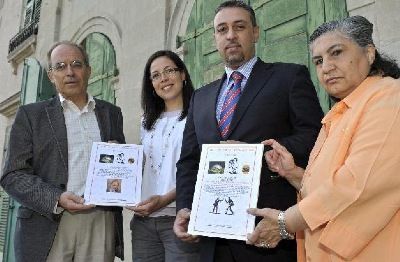
The Palestinian representative and Graça Perez, from the Mexican Mission to the United Nations in Geneva, with PEC president Hedayat Abdelnabi and PEC SG Blaise Lempen (keystone)
La PEC décerne le premier Prix pour la protection des journalistes conjointement à l'ONG palestinienne MADA et à l'ambassadeur mexicain à l'ONU Luis Alfonso De Alba
Genève, 4 juin (PEC) La Presse Emblème Campagne (PEC) a décerné pour la première fois le Prix pour la Protection des Journalistes jeudi conjointement au Centre palestinien pour le développement et la liberté des medias (MADA) et à l'ambassadeur du Mexique auprès de l'ONU Luis Alfonso De Alba.
L'ONG MADA, basée à Ramallah, est récompensée pour le rôle exceptionnel d'information qu'elle a joué en janvier, lors de l'offensive israélienne contre Gaza, du 27 décembre 2008 au 18 janvier 2009, alors que les medias ne pouvaient accéder au territoire palestinien de l'extérieur. En outre, elle documente au jour le jour la situation des medias dans une zone de conflit très dangereuse. Elle fait preuve de courage et d'impartialité en informant sur les violations de la liberté de la presse commises par toutes les parties.
L'ambassadeur mexicain Luis Alfonso De Alba, premier président du Conseil des droits de l'homme en 2006-2007, a été récompensé pour les efforts diplomatiques qu'il a menés afin de lancer un processus de consultation informel au niveau des ambassadeurs auprès de l'ONU sur
les moyens de renforcer la protection des journalistes dans les zones de conflit. L’ambassadeur De Alba a apporté son soutien aux efforts de la PEC pour attirer l’attention de la communauté internationale sur la nécessité d’un projet de convention améliorant la protection des medias confrontés à la violence, alors même que son pays, le Mexique, est l’un des plus dangereux pour les journalistes. Le Mexique a été l’initiateur de la Convention de l’ONU pour les droits des handicapés, un processus qui fut difficile au début mais qui s’est révélé être un succès, un processus inspirant la Campagne de la PEC.
Le prix a été décerné jeudi soir au Club suisse de la presse à Genève à l'occasion du 5e anniversaire du lancement de la Campagne. La cérémonie de remise du Prix, qui a marqué également la première journée de commémoration des journalistes victimes de la violence dans l’exercice de leur métier, a été sponsorisée par le
Ministère norvégien des Affaires étrangères, le magazine koweitien Al Yaquatha, dirigé par Ahmed Yusuf Behbehani, et le Club suisse de la presse.
« Le 5e anniversaire de la PEC marque un tournant. La PEC a développé de nouvelles idées et poursuit sa longue campagne en faveur des droits des journalistes en lui donnant un nouvel élan par la remise de ce Prix à l’occasion de la Journée de commémoration des victimes parmi les medias », a déclaré
la présidente de la PEC Hedayat Abdel Nabi.
« Au moment où nous honorons la mémoire des victimes, nous devons également honorer leurs familles qui ont besoin de soutien à la fois moral et matériel, alors que les droits de leurs proches ont été sérieusement violés », a-t-elle ajouté. Hedayat Abdel Nabi a félicité les sponsors de la cérémonie pour leur soutien.
« Le prix pour la protection des journalistes sera désormais décerné chaque année le 4 juin. Il vise à encourager des organisations et des individus à faire respecter le droit à l'information du public et les vies de journalistes qui ont seulement voulu témoigner des violations des droits de l'homme et du droit humanitaire dans des zones de violences", a expliqué
le secrétaire général de la PEC Blaise Lempen.
Le jury du prix est composé des membres du comité directeur de la PEC, tous journalistes professionnels, de plusieurs nationalités, en majorité correspondants accrédités à l'ONU. La PEC est soutenue par 38 associations de journalistes et ONG actives dans la défense des medias dans le monde, surtout dans les zones de conflit.
« Il est triste de constater que la situation des medias palestiniens s'est détériorée l'an dernier. MADA a documenté 257 violations en un an, dont 147 commises par les Israéliens, dont la plus sérieuse fut la mort du cameraman de Reuters Fadel Shana à Gaza. Les forces de sécurité et groupes armés palestiniens en Cisjordanie et à Gaza sont à l'origine de 110 autres violations », a déclaré le Dr Ghazi Hanania, président du comité directeur de MADA.
« Nous devons beaucoup au travail des journalistes, cameramen, correspondants, photographes et autres employés des medias, en particulier ceux qui travaillent dans des conditions dangereuses et difficiles », a déclaré
l’ambassadeur De Alba en acceptant le Prix de la PEC. « Il n’y a pas de doute que les journalistes, comme d’autres groupes, doivent aussi bénéficier des efforts globaux pour faire progresser leurs droits et leurs libertés, en particulier la liberté de mouvement et d’expression », a ajouté l’ambassadeur. Il a insisté sur le fait que la protection des journalistes est un sujet très important qui demande l’attention de toutes les parties concernées.
En cinq mois, depuis le 1er janvier, 45 journalistes ont été tués, selon le décompte de la PEC. L'an dernier, 91 journalistes ont perdu la vie dans l'exercice de leur métier, et l'année précédente, en 2007, 115 journalistes.
Depuis le début de 2009, le Pakistan est la zone la plus dangereuse pour les medias, avec six tués. Ce pays est suivi par le Mexique (cinq) et l’Irak (cinq), puis Gaza, lors de l'offensive d'Israël (quatre) et la Somalie (quatre). Viennent ensuite la Russie (trois), le Sri Lanka (deux), le Népal (deux), le Venezuela (deux), l'Afghanistan (deux), le Honduras (deux), la Colombie (deux). Une victime a en outre été recensée au Kenya, aux Philippines, à Madagascar, au Guatemala, en Inde et en Indonésie.
PRIMER PREMIO DE LA PEC POR LA PROTECCION DE LOS PERIODISTASCONCEDIDO CONJUNTAMENTE AL CENTRO PALESTINO PARA EL DESARROLO Y LA LIBERTAD DE LOS MEDIOS (MADA) Y AL EMBAJADOR MEXICANO ANTE LAS NACIONES UNIDAS EN GINEBRA LUIS ALFONSO DE ALBA
Ginebra, 4 jun (PEC) La Campaña Emblema de Prensa (PEC) ha concedido por la primera vez el Premio por la Protección de los Periodistas, el jueves, conjuntamente a la Organización No Gubernamental Centro Palestino para el Desarrollo y la Libertad de los Medios (MADA) y al Embajador de México ante la ONU en Ginebra, Luis Alfonso De Alba.
La ONG MADA, radicada en Ramallah, ha sido recompensada por el papel excepcional de información que desempeñó durante la ofensiva israelí contra Gaza, del 27 de diciembre de 2008 al 28 de enero de 2009, cuando los medios de comunicación no podían acceder al territorio palestino desde el exterior.
Además, MADA informa diariamente de la situación de los medios en una zona de conflicto muy peligrosa. En el ejercicio de su misión, MADA ha dado pruebas de valor y de imparcialidad al informar sobre las violaciones a la libertad de prensa cometidas por todas las partes.
El embajador Luis Alfonso de Alba, primer presidente del Consejo de Derechos Humanos (2006-2007), ha sido recompensado por sus esfuerzos diplomáticos desplegados, a fin de lanzar un proceso de consultas informales a nivel de embajadores ante la ONU sobre los medios de reforzar la protección de los periodistas en las zonas en conflicto.
De Alba ha aportado su apoyo a los esfuerzos de la PEC para llamar la atención de la comunidad internacional acerca de la necesidad de un proyecto de convención que mejore la protección de los medios confrontados a la violencia, aún cuando su propio país, México, es a menudo señalado como uno de los de mayor peligrosidad para los periodistas.
México fue el iniciador de la Convención de la ONU sobre los derechos de las personas con discapacidades, un proceso difícil al principio pero que resultó todo un éxito a nivel de la comunidad internacional, un proceso de inspiración para la Campaña de la PEC.
El premio fue entregado en la tarde del jueves en el Club Suizo de la Prensa, en Ginebra, en ocasión del 5to aniversario del lanzamiento de la Campaña. La ceremonia de entrega del Premio, que ha marcado igualmente la jornada conmemorativa de los periodistas víctimas de la violencia en
el ejercicio de su profesión, está patrocinado por el Ministerio noruego de Relaciones Exteriores, la revista kuwaití Al Yaqtha, dirigida por Ahmed Yusuf Behbehani, y el Club Suizo de la Prensa.
La presidenta de la PEC, Hedayat Abdel Nabi, afirma que « el 5to aniversario de la PEC marca un cambio decisivo en su labor. La PEC ha desarrollado nuevas ideas, ha establecido bases para el debate, y hoy da un salto hacia adelante en una de sus 1.000 millas para obtener el justo respeto hacia los periodistas caídos, movilizando a través de este Premio y del Día del Recuerdo un nuevo ímpetu para llevar adelante el proceso».
« Así como honramos la memoria de las víctimas, debemos igualmente honrar a sus familias, que requieren el apoyo moral y material, toda vez que los derechos humanos de sus allegados han sido seriamente violados », añadió.
« El premio por la protección de los periodistas será a partir de ahora concedido cada año el 4 de junio. Tiene por objetivo el estimular a las organizaciones y a los individuos a hacer respetar el derecho del público a la información y el derecho a la vidas de los periodistas que han querido solamente dar testimonio de las violaciones de los derechos humanos y del derecho humanitario en las zonas de violencia”, ha explicado
el secretario general de la PEC, Blaise Lempen.
El jurado del premio está compuesto por los miembros del comité director de la PEC, todos periodistas profesionales, de numerosas nacionalidades, en su mayoría corresponsales acreditados ante la ONU. La PEC cuenta con el apoyo de 38 asociaciones de periodistas y ONG activas en la defensa de los medios en todo el mundo, sobre todo en las zonas en conflicto.
« Es triste comprobar que la situación de los medios palestinos se ha deteriorado el pasado año. MADA ha documentado 257 violaciones en un año, de ellas 147 cometidas por los israelíes; la más grave fue la muerte del camarógrafo de Reuters Fadel Shana, en Gaza. Las fuerzas de seguridad y grupos armados palestinos en Cisjordania y Gaza fueron responsables de otras 110 violaciones »,
ha dicho el Dr Ghazi Hanania, presidente del comité director de MADA.
El embajador De Alba, al aceptar el Premio de la PEC, ha afirmado « Debemos mucho al trabajo de los periodistas, camarógrafos, corresponsales, fotógrafos y otros empleados de los medios de comunicación, en particular aquellos que trabajan en condiciones peligrosas y difíciles ».
« No caben dudas de que los periodistas, como otros grupos, deben también beneficiar de los esfuerzos globales para hacer progresar sus derechos y sus libertades, en particular la libertad de movimiento y de expresión», ha añadido el embajador. Asimismo, ha subrayado que la protección de los periodistas es una cuestión muy importante que demanda la atención de todas las partes concernidas.
En cinco meses, desde el 1 de enero, 45 periodistas han sido asesinados, según el conteo mensual de la PEC. El año pasado, 91 periodistas han perdido la vida en el ejercicio de su profesión, y el año precedente, en 2007, 115 periodistas.
Desde el inicio de 2009, Pakistán es la zona de mayor peligrosidad para los medios, con seis asesinados. Este país es seguido por México (cinco), Iraq (cinco), luego Gaza, durante la ofensiva israelí, cuatro, y Somalia, cuatro.
Seguidamente vienen Rusia (tres), Sri Lanka (dos), Nepal (dos), Venezuela (dos), Afganistán (dos), Honduras (dos), y Colombia (dos). Una nueva víctima también fue censada en Kenia, Filipinas, Madagascar, Guatemala, India e Indonesia.
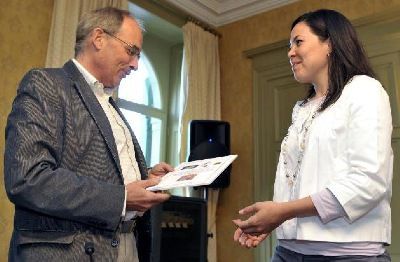
PEC Secretary General Blaise Lempen with the Mexican representative at the ceremony
Message of Ambassador Luis Alfonso de Alba, Permanent
Representative of Mexico to the United Nations Office in Geneva
Geneva, 4th June, 2009
Excellencies,
Ladies and gentlemen,
Let me first offer my most sincere apologies for not being present in this event. However, I would like to take this opportunity to thank the Press Emblem Campaign this unmerited recognition that it is offering me.
I would also like to acknowledge the work that PEC has done on the protection of journalists in armed conflicts. There is still a long way ahead to advance in this cause, but certainly PEC has managed to keep the issue very much active.
The protection of journalists is a key topic that deserves due consideration by all relevant parties. We owe much to the work that journalists, cameramen, correspondents, photographers, and other press staff do, particularly those that work under dangerous or difficult conditions. It is thanks to them all that the whole world gets to see, hear and read about the multiple events that take place in the farthest places on earth.
It is important to underline the commitment of journalists regarding the promotion and protection of human rights. Indeed, some journalists risk their lives everyday whether by reporting the situation directly from conflict zones, by collecting information regarding several issues that cause social insecurity or by documenting injustices and violations of human rights worldwide. Moreover, journalists efforts to inform the public on the happenings that take place before their eyes, are constantly subject of intimidation and threats.
The work done by the Human Rights Council and the journalists is closely related and there is a mutually beneficial relationship. We need each other. The Council needs journalists for adequate and wide dissemination of its work, including its failures and successes, to better address the challenges and opportunities that it faces. The media work helps the Council to convey the efforts done by its Members and other actors to uphold its commitment of reinforcing the human rights system.
There is no doubt that journalists, as other groups have done it, should also benefit from this global effort and gain specific advancement of their rights and freedoms, particularly freedom of movement and of speech. Awareness has to be raised. The number of violent incidents against journalists all over the world is considerable and impunity should be tackled, but the Council is there for all and Im sure that it will provide the necessary space for the enhancement of the protection of those rights.
I firmly believe we need to respect all human rights, everywhere and for everyone, and the right of journalists to practice their work without prejudice, obstacles, vulnerability or fear must be a priority for all of us.
Thank you all. Thank you the Press Emblem Campaign.
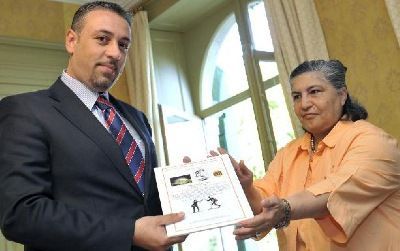
PEC president Hedayat Abdelnabi with the Palestinian representative
Speech delivered at the award ceremony by MADA (Palestinian Center for Development and Media Freedoms)
Dear friends
First of all I would like to thank Press Emblem Campaign (PEC), and all of you for awarding Palestinian Center for Development and Media Freedoms (MADA) with your first prize.
I fell happy to be here among friends and people we share with them the same goal, to defend media freedoms.
As you know we are living in an area which didn't live in peace since decades due to the Israeli occupation of Arab and Palestinian territories, the occupation forces not just was the only aggressor on journalists and media freedom outlets until mid nineties, but it had been doing all efforts to prevent Palestinian media development, through tuff censorship, closing media outlets, banning of issuing of new media outlets.
It is sad to say that the situation of the Palestinian media and media freedom has seriously deteriorated over the past year. MADA monitored 257 violations of media freedoms. Of those, 147 were committed by Israeli occupation forces and settlers, the most serious one being the deliberate killing of Reuters cameraman Fadel Shana'. The Palestinian security services in the West Bank and Gaza Strip and Palestinian gunmen committed 110 violations.
The violations have continued since the beginning of this year, despite the decline in the number of cases, particularly by Palestinians, compared to the same period last year.
But the first month of the current year witnessed serious violations, by the Israeli occupation forces, during the aggression on the Gaza Strip. Four journalists were killed: Basil Faraj, Ihab Wahidi, A'laa Murtaja, and Omar Silawi, and many were injured. Media outlets headquarters were destroyed, and shelled.
We believed and still believe there would be no dramatic decrease of media freedom violations, without Israeli withdrawal from Palestinian territories, and until this happens we think the international society must put real pressure on Israel to stop its attacks on journalists and media outlets.
In addition without reconciliation between Fatah and Hamas movements, which their conflict leaded to drastic escalation of media freedoms violations, especially in the last three years, and in appearance of new negative phenonomena like kidnapping foreign journalist by armed groups, and suing journalists because of their views .
Freedom of expression is vital for us as every human being in the globe, and because we are still under occupation, in addition Palestinian people needs to build his institutions and to develop his society, so we will do our best to as we did in the past three years to defend this vital human right and enhance it in oPt.
We are proud for receiving this award and gain thank you very much.
More info on MADA below
PEC 5 th anniversary: a turning point
By Hedayat Abdel Nabi
PEC President
The 5 th anniversary of the Press Emblem Campaign (PEC) marks a turning point in its work.
The PEC has developed ideas, set them for discussion, and today it starts a leap forward in its 1000 miles journey to honor the fallen journalists by mobilizing through its Award and the Remembrance Day a new momentum to carry the process forward.
In so doing the PEC decided to be the first to honor the victims and to award the living on the same day to help translate our mission, our dream, to bring to the arena rights for journalists cemented by law.
For us the PEC, today is a landmark in our long journey to allow our colleagues who have been killed in the line of duty to rest in peace by commemorating their memory by restoring their rights through our continued efforts for the living journalists.
As we commemorate their memory, the PEC honors the living who have joined and pushed the PEC campaign forward or who have forcefully defended freedom of opinion and expression in war zones, intense conflict situations and internal violence.
John F. Kennedy said that a journey of a thousand miles begins with just one step, we the PEC started the 1000 miles and more journey on 4 June 2004 and decided at that time that winning isn't everything- it's the only thing.
Kennedy also said that to accomplish great things, we must dream as well as act, for him power consists in one's capacity to link his will with the purpose of others, to lead by reason and a gift of heart. This is exactly what the PEC is doing.
The journey to the moon only needed several steps forward. Our hope in our journey for the proposed Convention for the Protection of Journalists, that it will succeed as that of man landing on the moon.
I would like to thank the sponsors of this event and would like to highlight the words of Norwegian Foreign Minister Joans Gahr Sore on 3 March 2008 when he told the Human Rights Council: “in situations of armed conflict, journalists are being killed while doing their job-witnessing world conflicts. We cannot accept that”.
As we honor the memory of the fallen journalists, we must pay tribute to the living, their families, who are in dire need for support morally and in material terms.
For the living victims, the human rights of their loved ones have been seriously violated and the wounds will never heal.
Intervention de Blaise Lempen, secrétaire général de la PEC
Les chiffres sont accablants: 45 journalistes tués depuis le début de l'année, 91 l'année dernière, 115 en 2007 et 96 en 2006.
En moyenne, cela représente deux journalistes tués par semaine au cours de ces trois dernières années. La plupart d'entre eux ont été délibérément visés.
Depuis le début de 2009, le Pakistan est la zone la plusdangereuse pour les medias, avec six tués. Ce pays est suivi par le Mexique (cinq) et l'Irak (cinq), puis Gaza, lors de l'offensive d'Israël (quatre), l'Irak (quatre) et la Somalie (quatre). Viennent ensuite la Russie (trois), le Sri Lanka (deux), le Népal (deux), le Venezuela (deux), l'Afghanistan (deux), le Honduras (deux), la Colombie (deux). Une victime a en outre été recensée au Kenya, aux Philippines, à Madagascar, au Guatemala, en Indonésie et en Inde.
Que faire pour stopper cette hémorragie ? Dénoncer est certainement utile.
L'enjeu va bien au-delà de la protection de la vie des journalistes. Il en va du droit du public à l'information, et plus précisément, d'une information crédible et indépendante sur les violations des droits de l'homme et du droit humanitaire. Le problème de l'accès des medias aux zones de conflit pour documenter ces abus est un problème majeur. Les exemples de l’Irak, de l’Afghanistan, du Sri Lanka, de Gaza le montrent. La solution qui consiste à interdire ces zones aux medias pour des raisons de sécurité ou, pour les medias, à renoncer à s'y rendre n'en est pas une. Sans information, les victimes sont privées de la voix qui permet de faire entendre leurs souffrances, leurs revendications.
La PEC souhaite qu'un débat se développe sur cette question essentielle de l'accès des medias aux zones de conflit. Pour cela, elle a lancé un processus de consultation sur un avant-projet de convention internationale. Il existe des centaines de conventions internationales sur de très nombreux sujets. Il n'existe aucun texte concernant la protection des journalistes dans les zones de conflit.
Un diplomate a été parmi les premiers à répondre à notre appel: l'ambassadeur Luis Alfonso De Alba. Premier président du Conseil des droits de l'homme, il a été aussi l'an dernier le premier président du groupe de travail informel intergouvernemental chargé de discuter des moyens d'améliorer la protection des journalistes en mission dangereuse.
Même si, en tant que diplomate, il a allié la prudence à la clairvoyance, il a fait preuve d'autant plus de mérite que son pays, le Mexique, est un des pays les plus touchés par le fléau de la criminalité visant les journalistes désireux d'enquêter sur la corruption et le trafic de drogue.
Malheureusement, l'ambassadeur De Alba quitte Genève, pour une autre mission confiée par son pays. C'est le lot de tous les diplomates. Nous aimerions que malgré son départ, le groupe de travail continue de se réunir et que d'autres éminents diplomates prennent le relais pour discuter de ce que l'on peut faire concrètement.
Nous espérons que l'année prochaine nous pourrons récompenser d'autres organisations, d'autres personnalités pour le rôle qu'elles auront joué afin de mieux faire respecter les droits des medias à informer dans les zones de violences.
Merci pour votre présence ce soir. Merci à la Norvège pour le soutien financier qu'elle nous a offert. Merci à tous pour votre soutien.
PRESS RELEASE Palestinian Center for Development &Media Freedoms
MADA wins the Award of Press Emblem Campaign (PEC)
4 June 2009
The Palestinian Center for Development and Media Freedoms (MADA) expresses its proud for receiving the award of Press Emblem Campaign (PEC) for its role in defending media freedoms in the occupied Palestinian territories.
The Press Emblem Campaign (PEC) has announced today, from its headquarters in the Swiss city of Geneva, the selection of MADA and the Ambassador of Mexico to the United Nations in Geneva for the first prize. It has confirmed in its statement that the award goes equally between MADA and the Mexican ambassador Luis Alfonso Dalba, for their prominent role in advancing the issue of journalist protection forward.
It is the first prize of the International Campaign and the first award made for the international effort to protect journalists which considered
June 4, as a commemoration of those who have fallen during performing their job.
Dr. Ghazi Hanania, Chairman of MADA Board of Directors, who has been supposed to receive the award and participate in its celebration, but
circumstances prevented his travel at the last moment, sent a letter to President of the organization, Hedayat Abdelnabi, expressing his thanks
for selecting MADA Center for this year award. He emphasized that media freedoms have been deteriorated last year and the beginning of this year,
whereas the Israeli occupation forces killed five journalists.
He also stressed that freedom of expression is important for us as well as for every human being living on earth, but because we are still under the
Israeli occupation the Palestinian people needs this freedom more than others for building its institutions and developing the Palestinian
society. Dr Hanania added, we will make every possible effort as we have done over the last three years to defend this vital human right and to
promote freedom of opinion and expression in the Palestinian territories.
Hedayat Abdelnabi said at the beginning of the ceremony today, the International Campaign Award, which at the same time commemorates those
journalists who were killed, is a renewed impetus to the international campaign to mobilize the international community in order to proceed in the
establishment of a new international legal system for the protection of journalists in times of war, internal conflicts and in times of danger.
Palestinian Center for Development & Media Freedoms (MADA) :
is independent, nongovernmental, and nonprofit organization, it was established by initiative of Palestinian journalists and interested personalities to develop Palestinian media and to defend journalists and media institutions, MADA is licensed from Palestinian interior ministry under registration number: RA-250-I
MADA Administrative Council:
1. Dr. Ghazi Hanania- Chairman
2. Dr. Taleb Awad-Vice Chairman
3. Dr. Ms.Esmat Abdel Khaleq- General Secretary
4. Mr. Saleh Hakawati- Treasurer
5. Ms. Nahed Abu Ta'emah
6. Mr. Majed Arouri
7. Ms. Sana Aranki
8. Mr. Nihad Abu Ghoush
9. Dr. Hani Hroub
MADA
is the first independent media organization, who monitors media freedom violation in Palestinian territories, where the number of violations is is very high, it is one of the biggest not just in Arabic world but in all over the world.
MADA played an important role in defending journalists and media outlets and uncovering the perpetrators, and is doing its best those perpetrators to be persecuted and brought to justice, Mada also is playing good role in enhancing the importance of freedom of expression and opinion, in spite of danger, difficulties.
By
MADA reports hundreds of national and international organization and thousands of people became more aware of media freedom situation in Palestine and a lot of journalists, people and organizations were encouraged by Mada work, and began to speak loudly against media freedoms violations, MADA also participated actively in the campaign to release BBC Codependent Alan Johnston and other kidnapped journalists.
MADA Participated in Arabic Freedom of Expression forum in Beirut (12-13 November 2008), which was organized by World Associations of Newspapers (WAN).
MADA is member in Press Emblem Campaign (PEC) in Switzerland.
MADA
participated in International Freedom of Expression exchange (IFEX) General Meeting, which took place in Uruguay capital Montevideo ( October7-12,2007), and was the only Palestinian organization, who was invited to the General Meeting.
MADA participated in 2009 World Press Freedom Day in Doha -Qatar on 2 May 2009 organized by UNISCO and Doha Centre for Media Freedoms
MADA will participate in the Global Forum on Freedom of Expression 1-7 June 2009 –Oslo- Norway, and IFEX general Meeting,
MADA Reports and press release are published regularly on and Arabic Net for Human Rights website: http://www.anhri.net/palestine/mada
Goals:Raising media institutions work, and professional performance of Palestinian journalists.Encouraging journalism and media creativity in Palestine.Defending media freedom.Promotion of freedom of opinion and expression culture, and work to develop their own legislation.Contributing to human rights defense and democracy enhance in Palestinian society.Defending journalist’s right of access to information.Cooperation with similar institutions at Arab and international levels.
Programs:Media freedoms Program. Studies and research Program.Bulletins and periodicals Program.Media library Program.Training and capacity building Program.Conference, seminars, and workshops Program.Media survey program.
Contact:
Mousa Rimawi
MADA Coordinator
Ramallah
info@madacenter.org -madapalestine@yahoo.com
http/:www.madacenter.org
Ramallah-Al-Ersal St. -Karmel Bldg. - 4th Floor-Office 2
Tel& fax +970 2 2976519